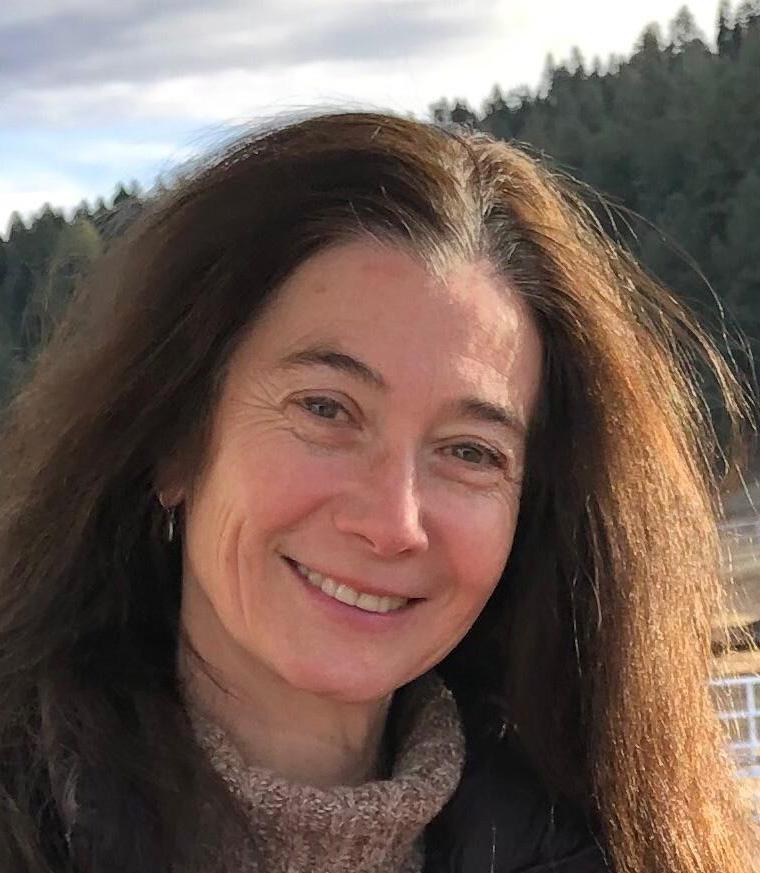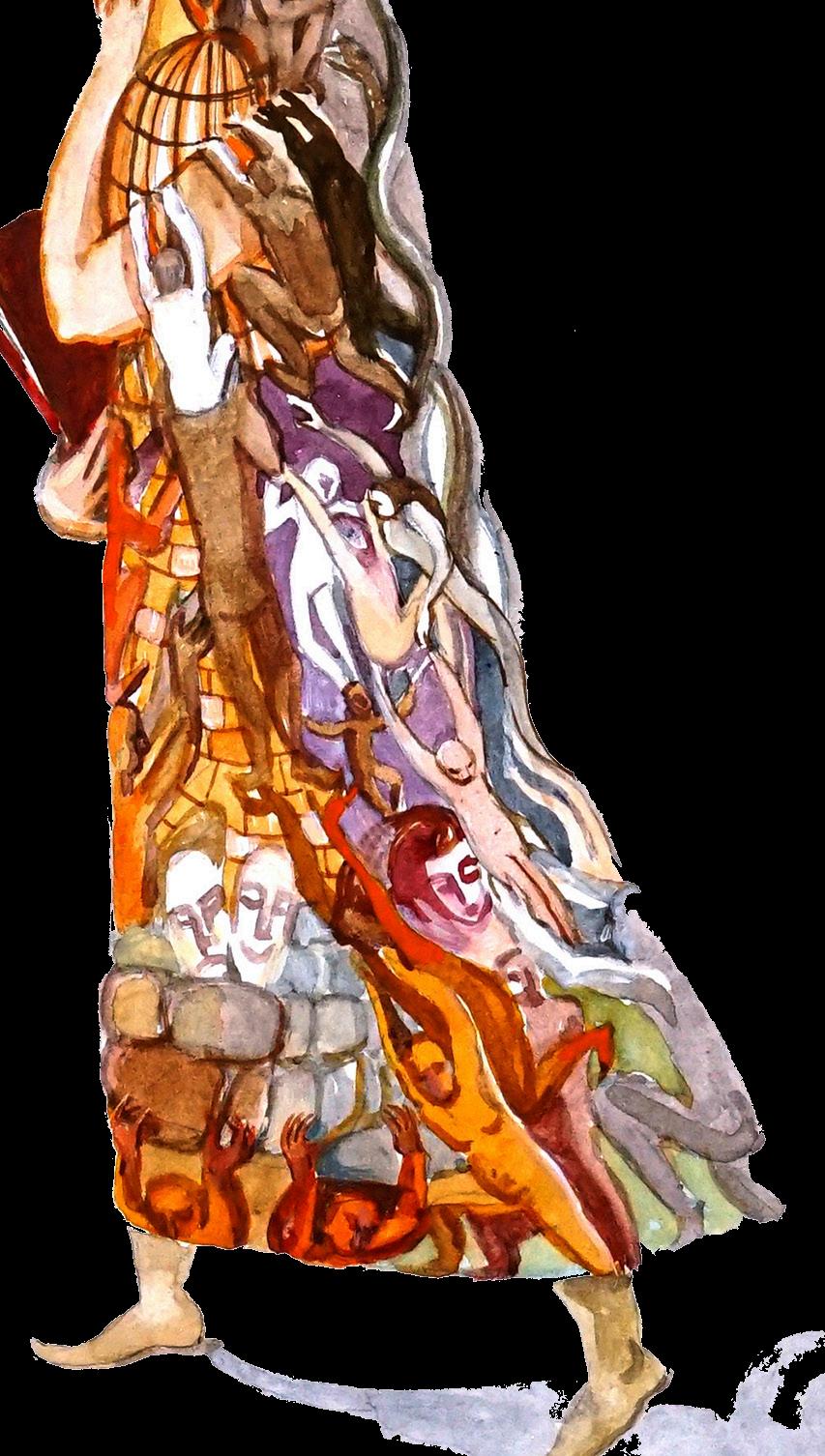Carmen Amato Tejeda



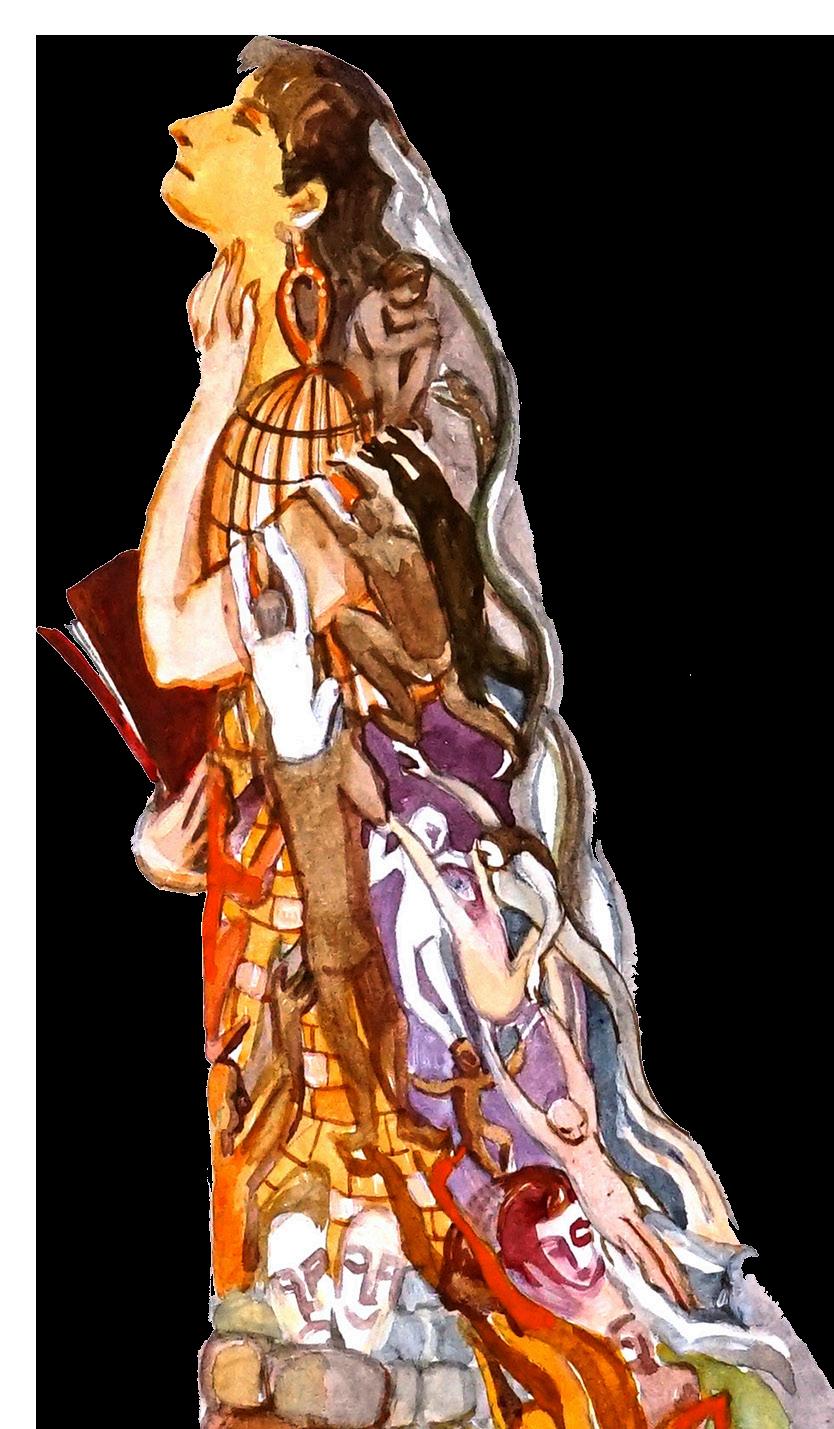
Carmen Amato Tejeda, nació en Aguascalientes, México. Es poeta, fotógrafa, docente y gestora cultural. Autora de 9 poemarios; más de veinte exposiciones fotográficas colectivas e individuales. Ha sido maestra de lengua y literatura en universidades nacionales y extranjeras; coordinadora de varios talleres de poesía y autobiografía. Organizadora de 12 encuentros internacionales de poetas. Fundadora y coordinadora de la Colectiva Indagaciones poéticas cuya función es visibilizar y difundir el trabajo creativo de las mujeres, y socia de la empresa cultural Intelecta.
Carmen Amato Tejeda, was born in Aguascalientes, Mexico. She is a poet, photographer, teacher and cultural manager. Author of 9 poems; more than twenty collective and individual photographic exhibitions. She has been a language and literature teacher at national and foreign universities; coordinator of several poetry and autobiography workshops. Organizer of 12 international meetings of poets. Founder and coordinator of the Poetic Inquiries Collective whose function is to make visible and disseminate the creative work of women, and a member of the cultural company Intelecta.
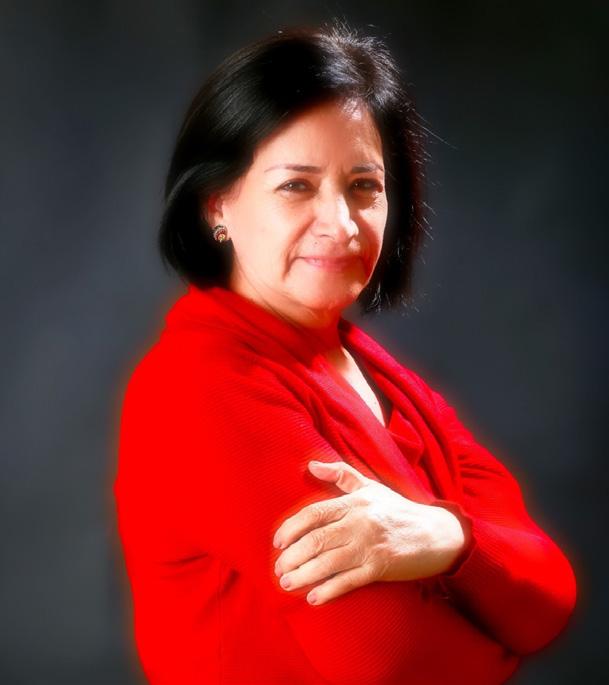

IndexThe Sky is a Separate Sea
El cielo es otro mar7
The night talks La noche habla8
The night crosses my body La noche cruza por mi cuerpo
The train passes by and howls like a wounded animal
El tren pasa y gime como animal herido10
The train El tren12 It will never be november Nunca será noviembre
The other Juarez
El otro Juárez15
Weeping willow trees Sauces y llorones
The House La casa
That cat drank the light
What a privilege is to have a garden when we are children
17 18 19 21
Esa gata se bebió la luz
Like fawn 20 Como cervatillo
¡Qué privilegio! es tener un jardín en nuestra infancia
Wherever I may go. A donde vaya
Nostalgia is a ghost
The visitors
Who can plant their feet on the ground?
23 25 27 Los visitantes
La nostalgia es un fantasma
As Lazarus Como Lazaro
¿Quién puede poner los pies sobre la tierra?
Song II Canto II
In Tempe there are trees with feathers
En Tempe hay árboles con plumas
Ésos pajaros que pintan el día de pequeños signos.Those birds painting the day with small signs.
I do not want to trap you, Yo no quiero atraparte
Mis pertenencias son Ahora,My belongings are NOW, La misma ventana no implica la misma mirada
The same window does not mean the same gaze:
Fish and planes
Today we are the silence
Translators
Peces y aviones
Hoy somos el silencio
Traductores
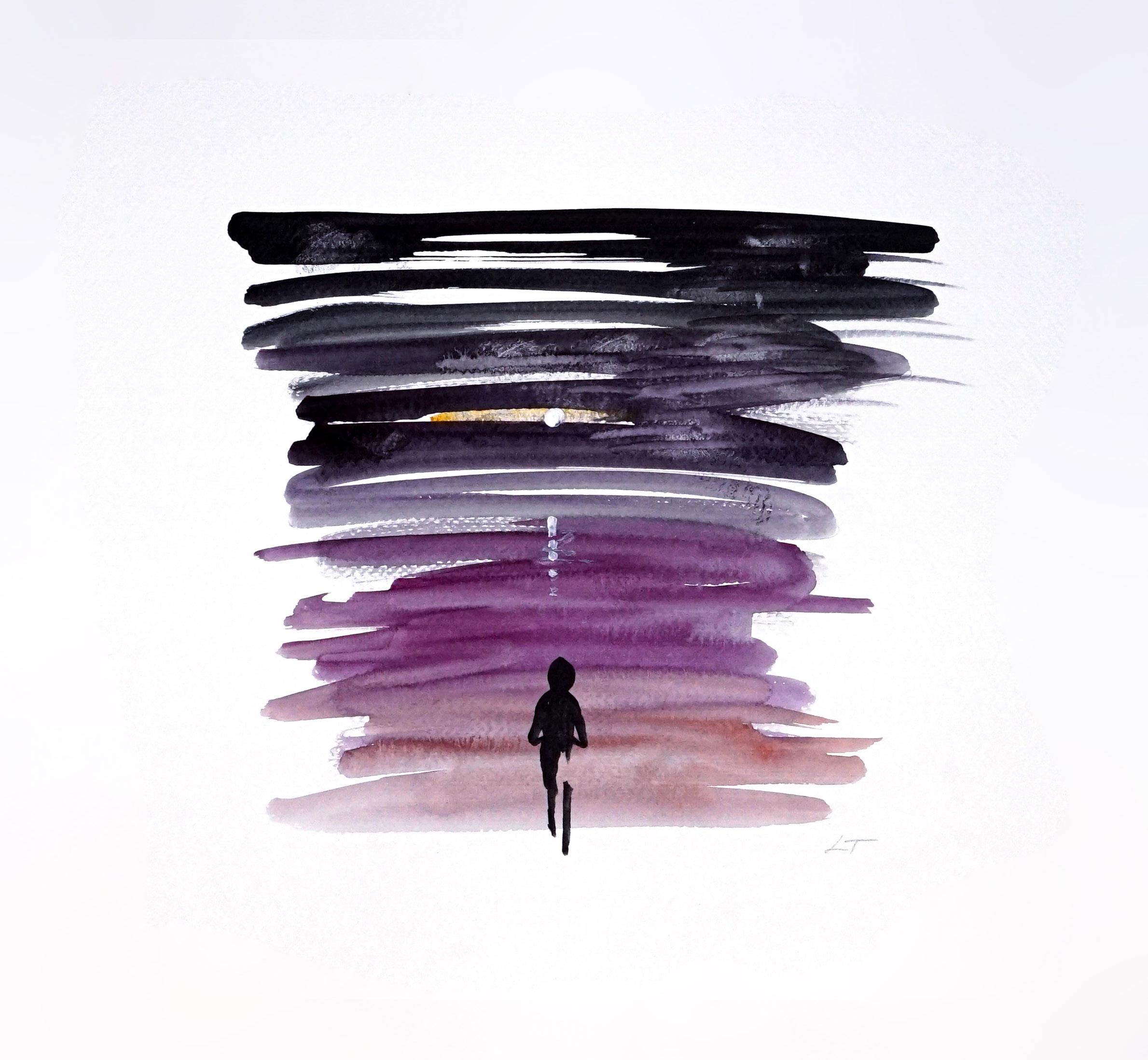
It was the yawn of night or something more that I didn´t comprehend I kept a heart attentive to that darkness that, to me, announced a birth the blackness, was tattooed by a white line, slight, like that wedge which separates time and space, an invisible Hercules placed the stake and penetrated the light the sky revealed its heart - holocaust offered to a higher god-
Tides from the other sea spoke with its undertow, the sea reflected a sky resting below.
Era el bostezo de la noche o algo más que yo no comprendía, mantuve el corazón atento a esa oscuridad que me anunciaba un parto,
la negrura fue tatuada por una línea blanca, leve, como la cuña que separa el tiempo del espacio. Un invisible Hércules puso la estaca para abrir la negrura y que la luz penetrara: el cielo mostró su corazón -holocausto ofrecido a un dios más altoMareas con su resaca hablaron de otro mar que reflejaba un cielo que iba quedando abajo.
In the highest night of its nakedness the night speaks
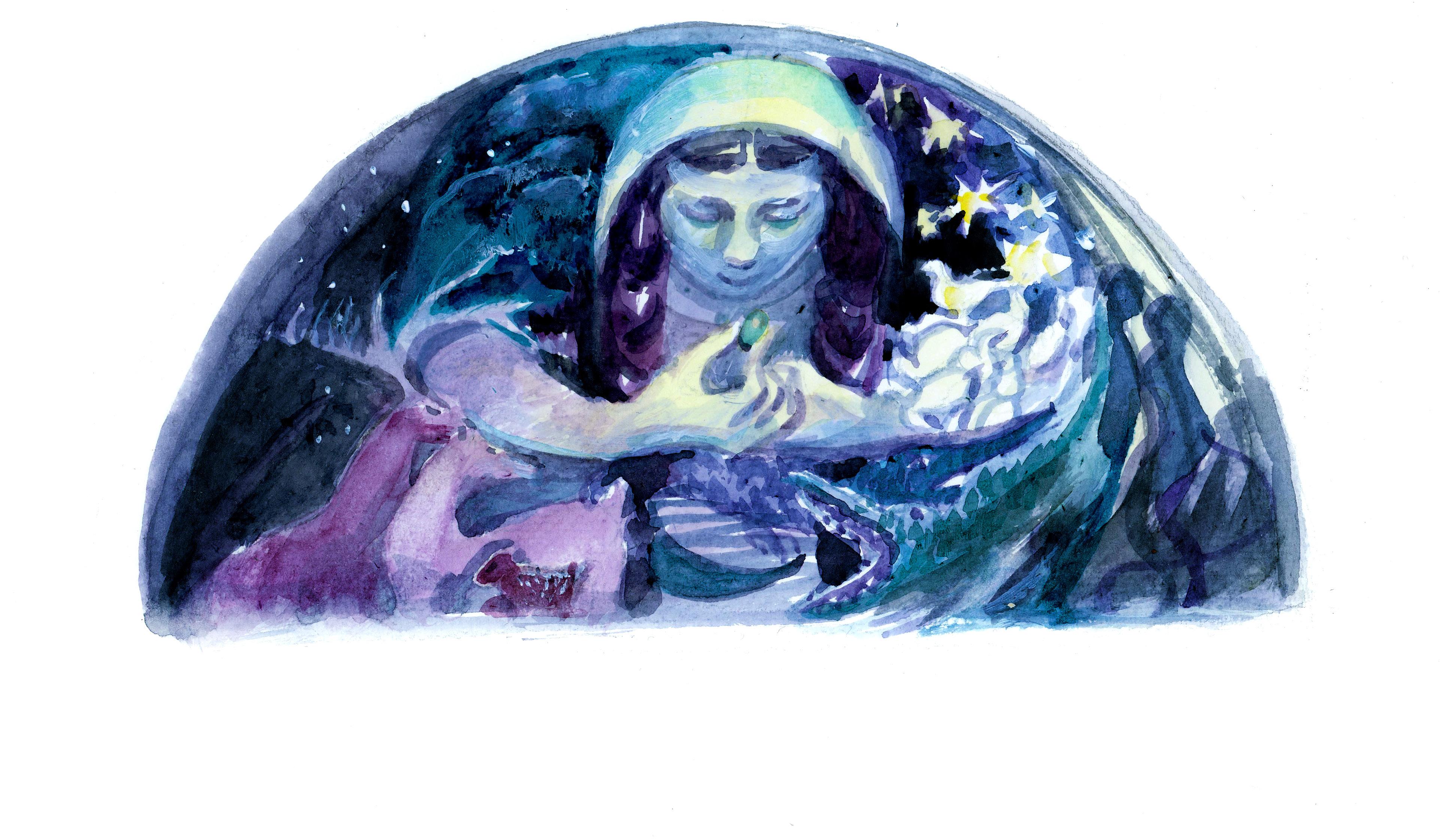
It speaks of the irrecuperable.
It speaks of the darkness that unfolds her stream of birds in the clock of the day.
It speaks to the ear about the wound where the voice spills as a balm, It speaks from the humble heart of the seed where the not revealed truth is evolving.
En la hora más alta de su desnudez la noche habla.
Habla de lo irrecuperable. De la oscuridad que desata su manantial de pájaros en el reloj del día.
Habla al oído de la herida donde su voz se escurre como un bálsamo.
Habla desde el humilde corazón de la semilla donde está su verdad no revelada gestándose.
The night crosses my body, it is a white mare.
I’m open plain, memory that burns like incense. The night and I die for a moment in that darkness that is already moving away. We hold on to the light in the moment precisely that ceases to be a shadow, and we are transformed on the spot. The mare is now a white foal. And I am the Amazon.
La noche cruza por mi cuerpo, es una yegua blanca. Yo soy llanura abierta, memoria que se quema como incienso. La noche y yo morimos un instante en esa oscuridad que ya se aleja. Nos adherimos a la luz en el momento exacto que deja de ser sombra, Y somos transformados en el acto. La yegua es ahora un potro blanco. y yo soy la amazonas.
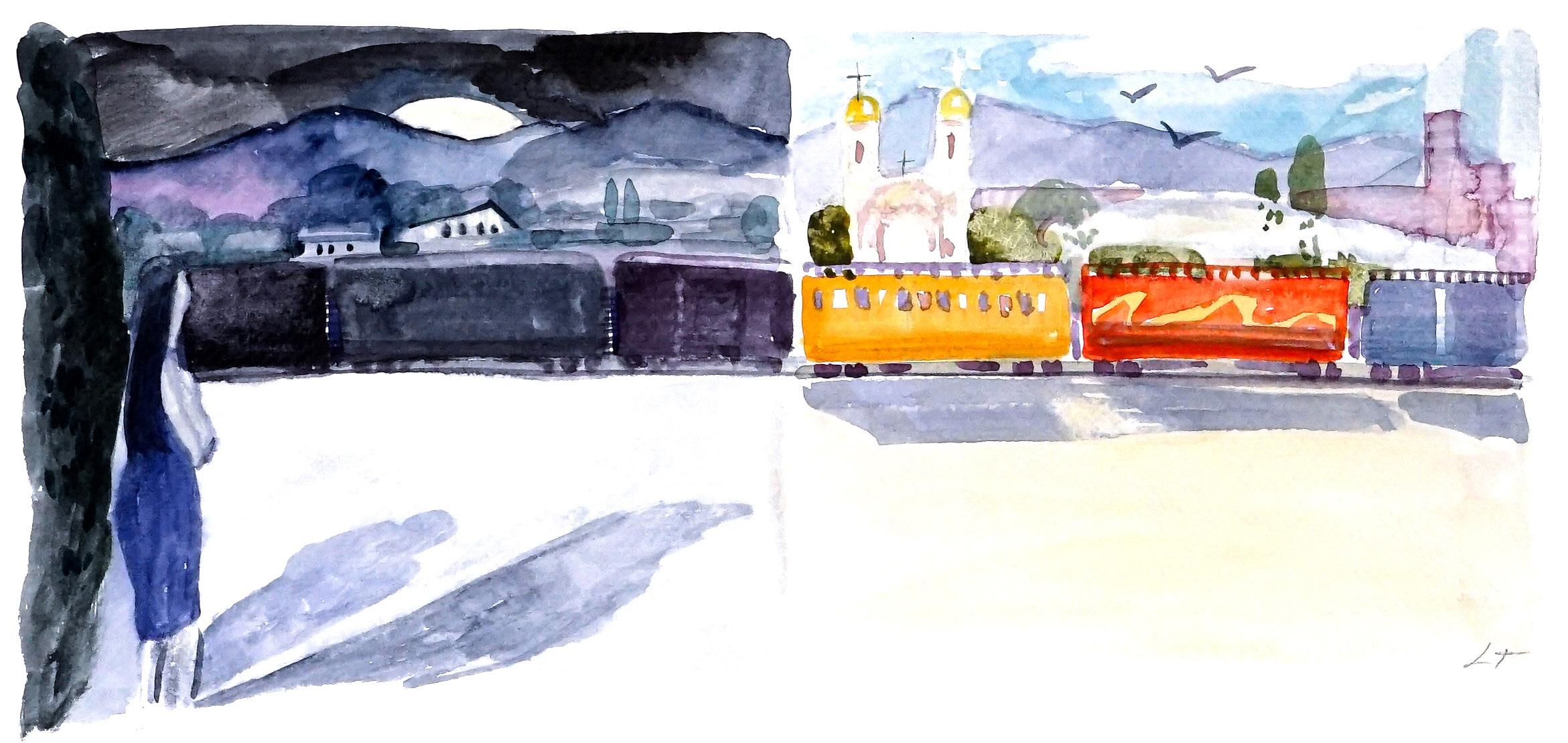
Cuts the longest track to loneliness and crosses through the vacant body of the night.
When the nocturnal animal has already passed by far away, you can hear it crushing the distance with its multiple circular teeth.
Corta la vía más larga a la soledad y cruza el deshabitado cuerpo de la noche. La ciudad, cimbrada siente la vibración de su paso. Cuando el nocturno animal ya ha pasado a lo lejos se oye la distancia triturada por sus múltiples dientes circulares.
The dream watches over the streets at dawn. A lonely train crosses the border.
At the height of the darkest moment a woman holds her humanity in suspense a moment later the luminous almond shines in another space.
In the village, a sweet whistle announces the arrival... Dawn.
El sueño vigila por las calles de la madrugada. Un solitario tren cruza la frontera.
En el ápice del más oscuro instante una mujer sostiene su humanidad en vilo. Un instante después la luminosa almendra brilla en otro espacio.
En el pueblo, un dulce silbato anuncia la llegada…
Amanece.
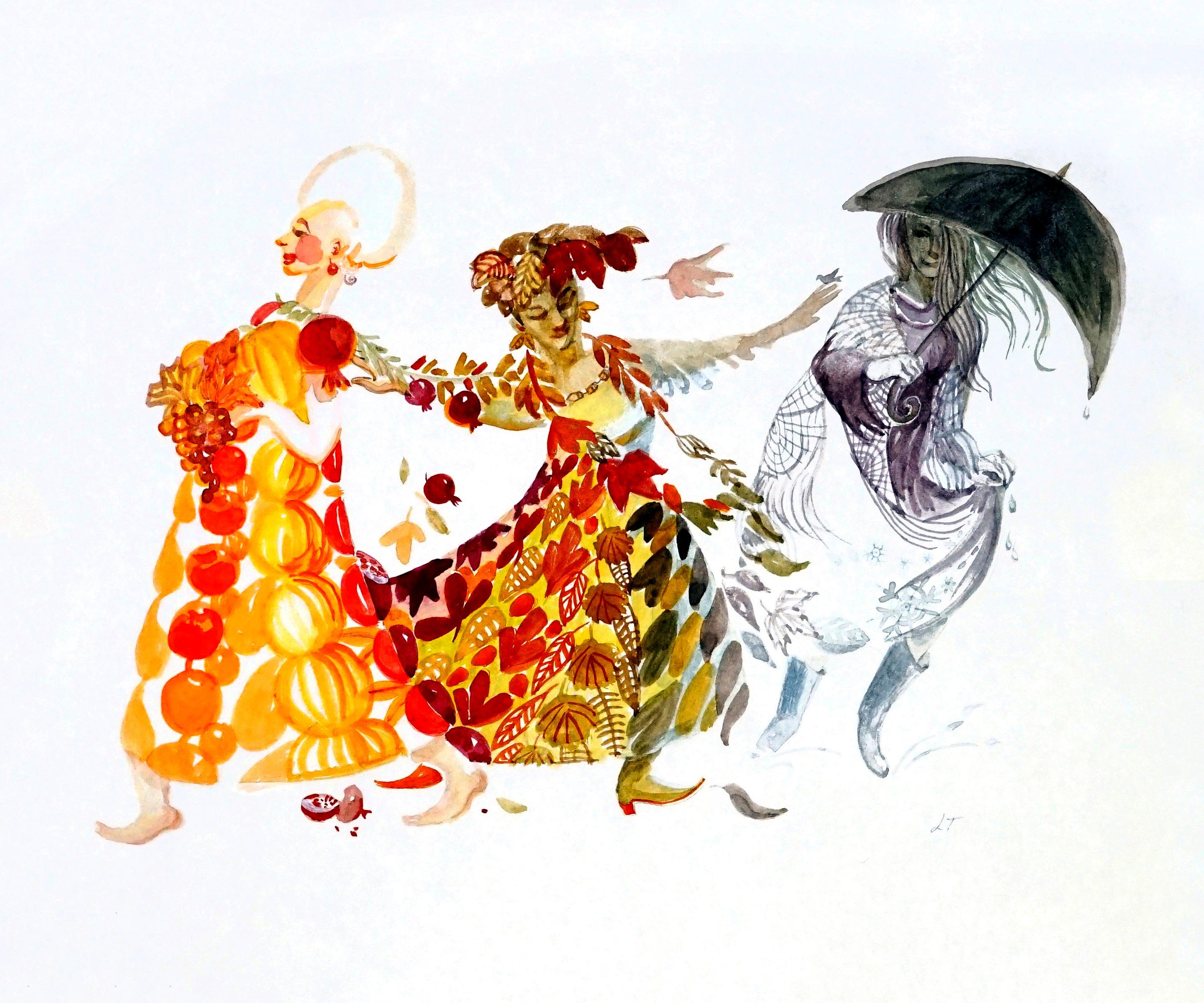
It will never be november Nunca será noviembre September arrives and his step grows until it dies in the whiteness of oblivion, without a shadow of the burning, it had.
Septiembre llega y su paso crece hasta morir en la blancura del olvido, sin una sombra del ardor que tuvo.
Something is changing and he doesn’t know it until the day its name It already has fewer letters. It hurts me to look at it in the corners: its yellow beat, its sleepy gesture. Gilding leaves and whistling sad his name is short as October, and its moons no longer belong to it And it will never be November.
It stays, without knowing it between the fingers of the trees, between the streets turned to dust, stuck in people’s shoes that as he doesn’t know how changes its name
Algo va cambiando y él no lo sabe hasta el día que su nombre ya tiene menos letras. Me duele mirarlo en las esquinas: su amarillo latir, su gesto soñoliento, dorando hojas y silbando triste su nombre se hace breve como octubre, y no le pertenecen ya sus lunas y nunca será noviembre.
Se va quedando, sin saberlo entre los dedos de los árboles, entre las calles convertido en polvo, prendido en los zapatos de la gente que como él no sabe cómo cambia su nombre.
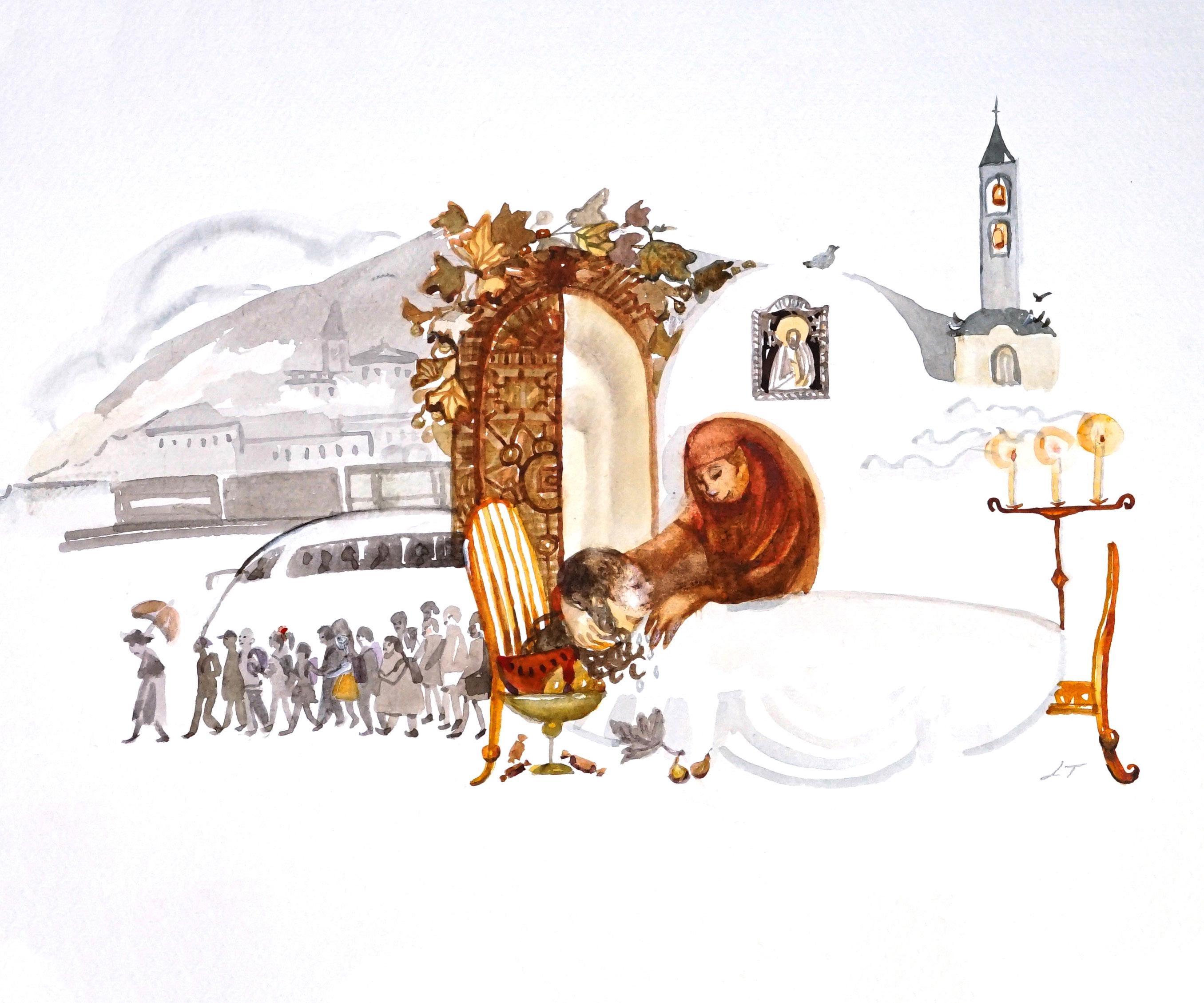
I remember: a brass bed in a room blindingly white, a woman dressed brown taking my head and on the wall hung the icon of a saint.
Memory: the water of baptism slipping on my temples, the smell of incense in the sacred precinct, a chirping of pigeons nested in the tower and the gold coins that gave the bell tower.
Memory: the daily trips of the house to school, the patch of uniforms that ran through the streets and, perfuming the fruit the smell of the afternoon.
I remember: the pregnant fig trees in the patio neighbor, the vineyard draining its bunches of time, the lofty gates of carved wood and the gleaming hallway at my grandmother’s house.
I remember: frequent guests in times winter, impatient lunch waiting at the table and the children mounted in the immense turtle - bus tracing a domestic route.
I remember: the rumble of trains devouring the road and the nights of travel that insomnia elongated, the scent of moss, the texture of hay, the exciting sleeplessness of the night of kings and goodbye to childhood of alfajor and cajeta.
I remember: distant visions of a city distant, the exact factions of those who already they do not exist, but they continue to transit persistent and alive in this other city also called Juarez.
En esta otra ciudad que también se llamaba Argentina. Jorge Luis Borges
Recuerdo: una cama de latón en un cuarto segadoramente blanco, una mujer vestida de café tomando mi cabeza y en la pared colgado el icono de un santo.
Recuerdo: el agua del bautismo resbalando en mis sienes, el olor del incienso en el recinto sagrado, un gorjeo de palomas anidado en la torre y las monedas de oro que daba el campanario.
Recuerdo: los cotidianos viajes de la casa a la escuela, el manchón de uniformes que corría por las calles y el olor de la fruta perfumando la tarde.
Recuerdo: las preñadas higueras en el patio vecino, el viñedo escurriendo sus racimos de tiempo, las altísimas puertas de madera labrada y el zaguán reluciente en casa de mi abuela.
Recuerdo: los huéspedes frecuentes en épocas de invierno, el almuerzo impaciente esperando en la mesa y los niños montados en la inmensa tortuga - ómnibus - trazando una ruta doméstica.
Recuerdo: el runrún de los trenes devorando la vía y las noches de viaje que el insomnio alargaba, el aroma del musgo, la textura del heno, el desvelo excitante de la noche de reyes y el adiós a la infancia de alfajor y cajeta.
Recuerdo: las visiones lejanas de una ciudad distante, las facciones exactas de los que ya no existen, mas siguen transitando persistentes y vivos en esta otra ciudad también llamada Juárez.
My mother had two weeping willow trees at home, One inside, the other out there.
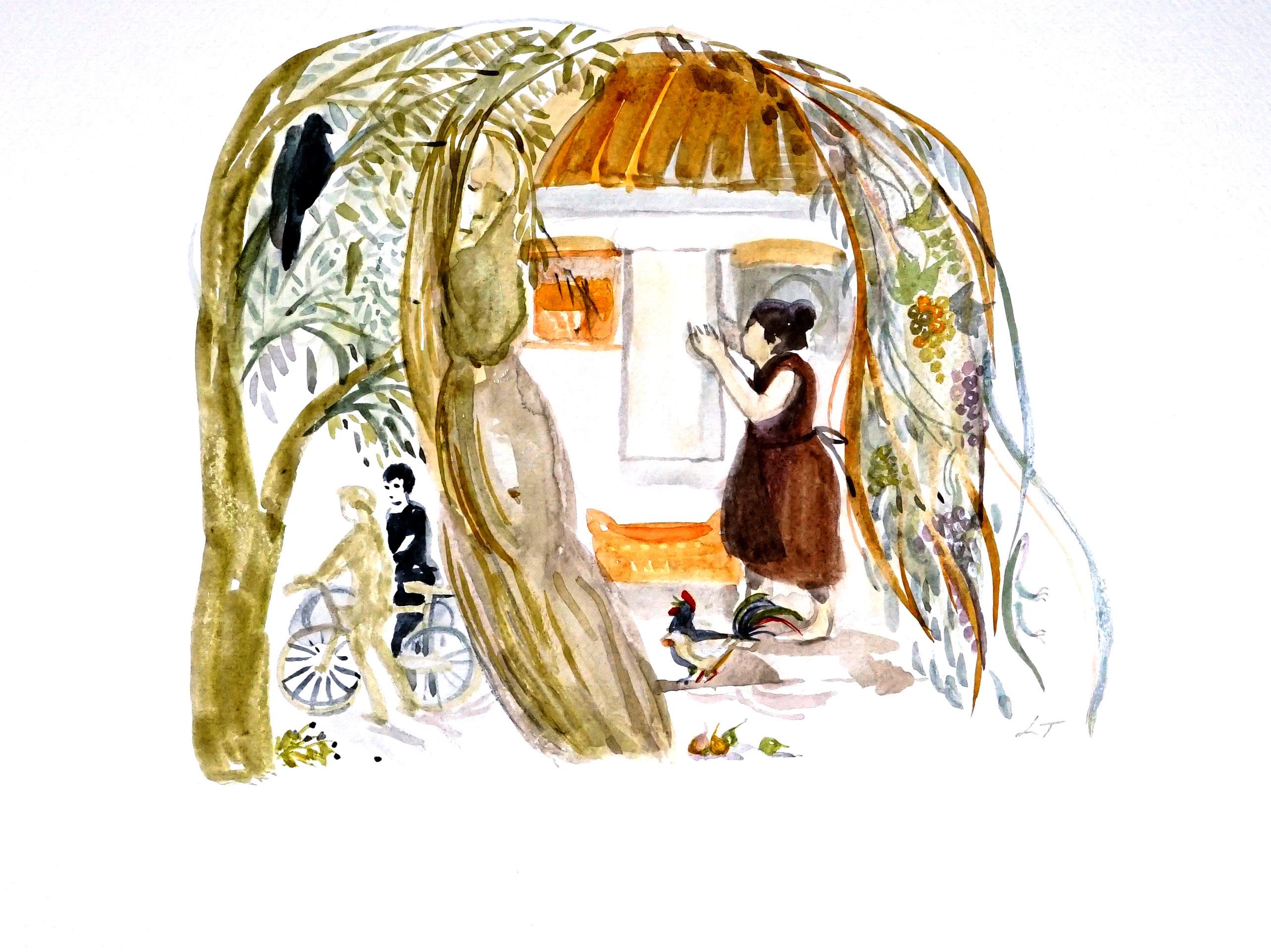
When she died, the one in the outside dried out. With the years, the one inside grew in beauty
And bore four little weeping sprouts.
Now their cadence makes the garden a happy place Like the willow that scented my mother’s heart for years.
Mi madre tenía dos llorones en su casa, uno adentro y otro afuera.
Cuando ella murió se secó el de afuera, con los años, el de adentro se puso hermoso y retoño en cuatro lloroncitos.
Ellos ahora alegran con su cadencia el jardín de la casa, como aquél que perfumó por años el corazón de mi madre.
The light in the window is the hint of the reading that opens behind the gate: “The house”, is a beautiful phrase.
In the garden the ravens drink the silence, while the children stroll their bicycles.
A woman removes and hangs cloth in the backyard, like peace flags in the desert.
I look, not at her, but at that aromatic struggle.
I look at the willow tree and between its branches, the shadow of my mother and her cadence.
I look at the grapes, the blackberries, the fig trees, the scourer, the nogales, and in the ritual of sharing the fruits, the signs of my father.
I look at the rain, I hear the rain, I feel the rain crashing down, the whole house is a poem, where green rhymes with a time before.
La luz es la ventana es el indicio que tras la reja se abre. ¨La casa¨ es una bella frase.
En el jardín los cuervos se beben el silencio, mientras los niños pasean sus bicicletas.
Una mujer recoge y tiende ropa en el traspatio, como banderas de paz en el desierto.
Yo miro, más no la miro a ella, sino esa aromática contienda.
Miro el sauce y entre sus ramas la sombra de mi madre y su cadencia. Miro las uvas, las moras, las higueras, el estropajo, los nogales, y en el ritual de repartir los frutos los signos de mi padre.
Miro la lluvia, oigo la lluvia, siento la lluvia derrumbarse, la casa toda es un poema donde del verde rima con un tiempo de antes.
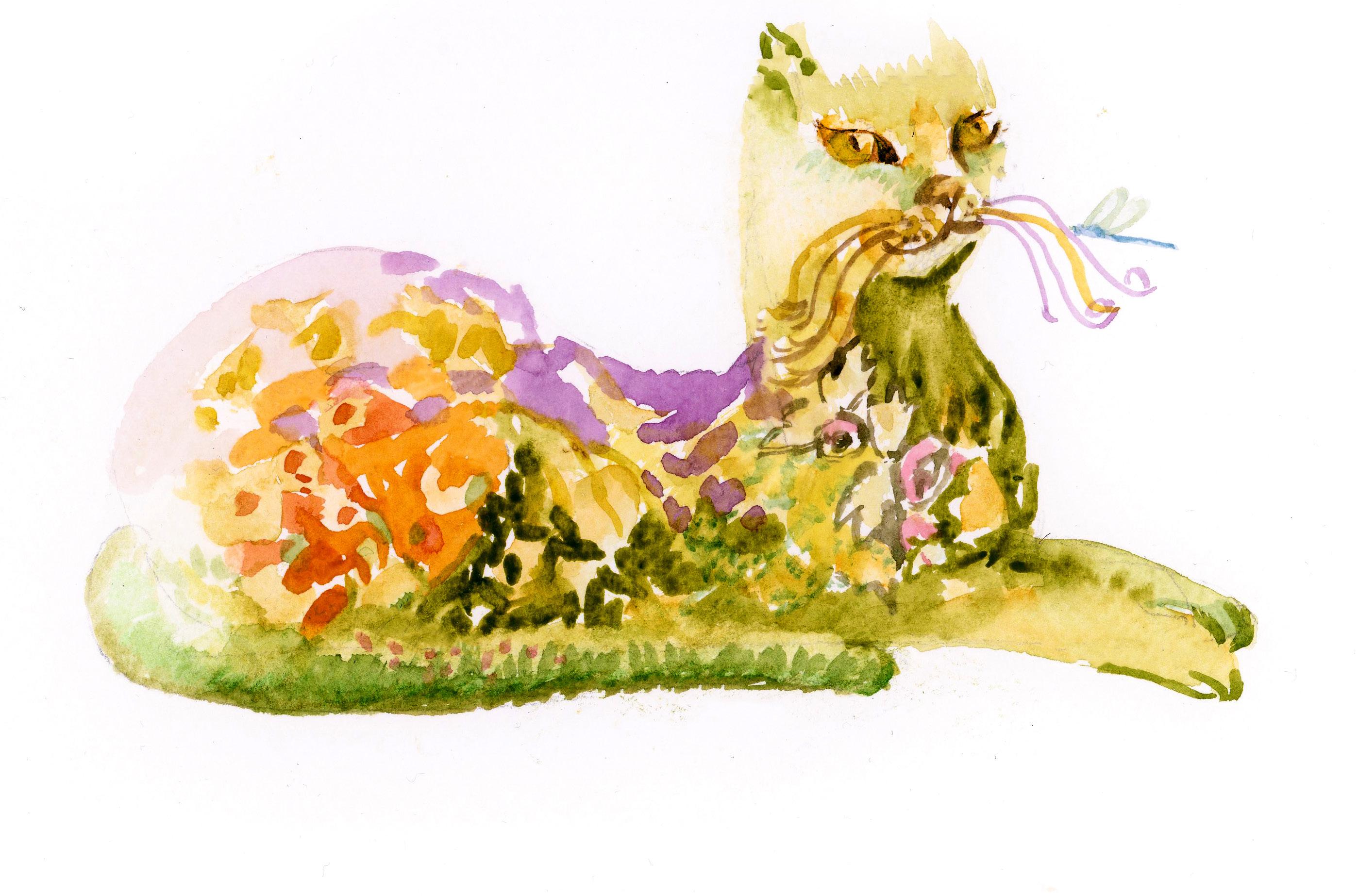
That cat drank the light and from her amber color eyes the garden is filled with yellow sparkles.
Esa gata se bebió la luz y desde sus ojos color ámbar se llenó el jardín de amarillos destellos.
There he is, with the nested air on the chest and the thirsty eyes of the daylight that grows like him, fresh and promisory. Warns of the laborious bustle with his 100,000 questions and the smell of the growing grape in his blood. Self-absorved he sees his reflection in the water unknown to himself and known again by him and runs jubiliously trapping the hours in a horizon with no clouds. Like a star that explode in light my son grows up
Ahí está, con el aire anidado en el pecho y los ojos sedientos de la luz del día que crece como él fresco y promisorio. Advierte el bullir laborioso de sus cien mil preguntas y el olor de la uva germinando en su sangre. Mira ensimismado su reflejo en el agua y se desconoce, y se reconoce y corre jubiloso atrapando las horas en un horizonte sin nubes. Como estrella que revienta en luz mi hijo crece.
It does no matter if large or small, A garden that we can carry in our mind, So, later, when adults, while living in industrial cities, In apartment buildings, almost in the air, sedentary and exhausted
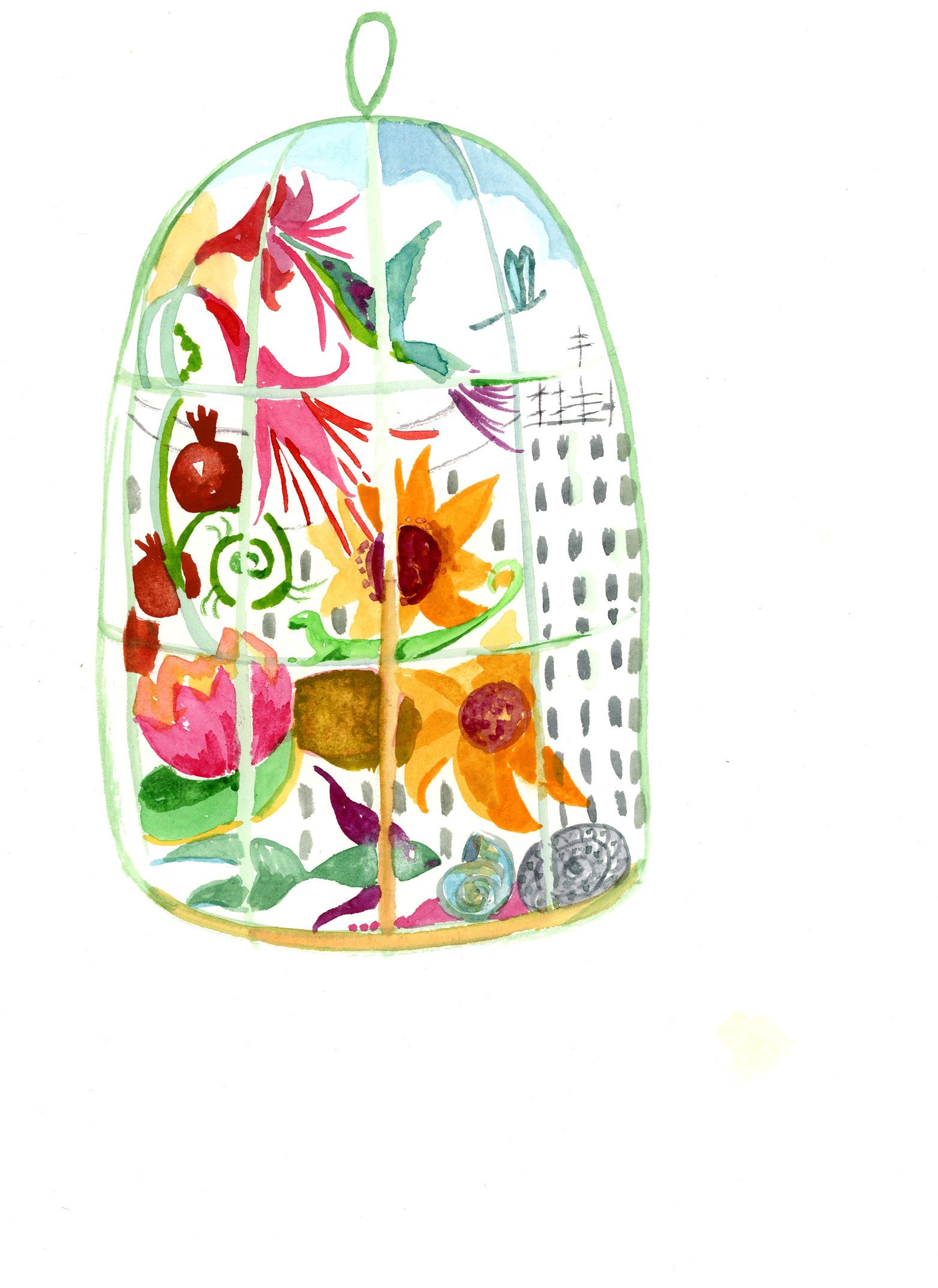
By the everyday grind, we can take it out to play In that little piece of infancy, which we still keep with us.
No importa si es grande o es pequeño, un jardín que podamos llevar en nuestra mente, para después, al ser adultos, viviendo en ciudades industriales, en condominios, casi en el aire, sedentarios y agotados por el trajín de la vida cotidiana, podamos sacar a retozar en él ese trozo de infancia que todavía guardamos.
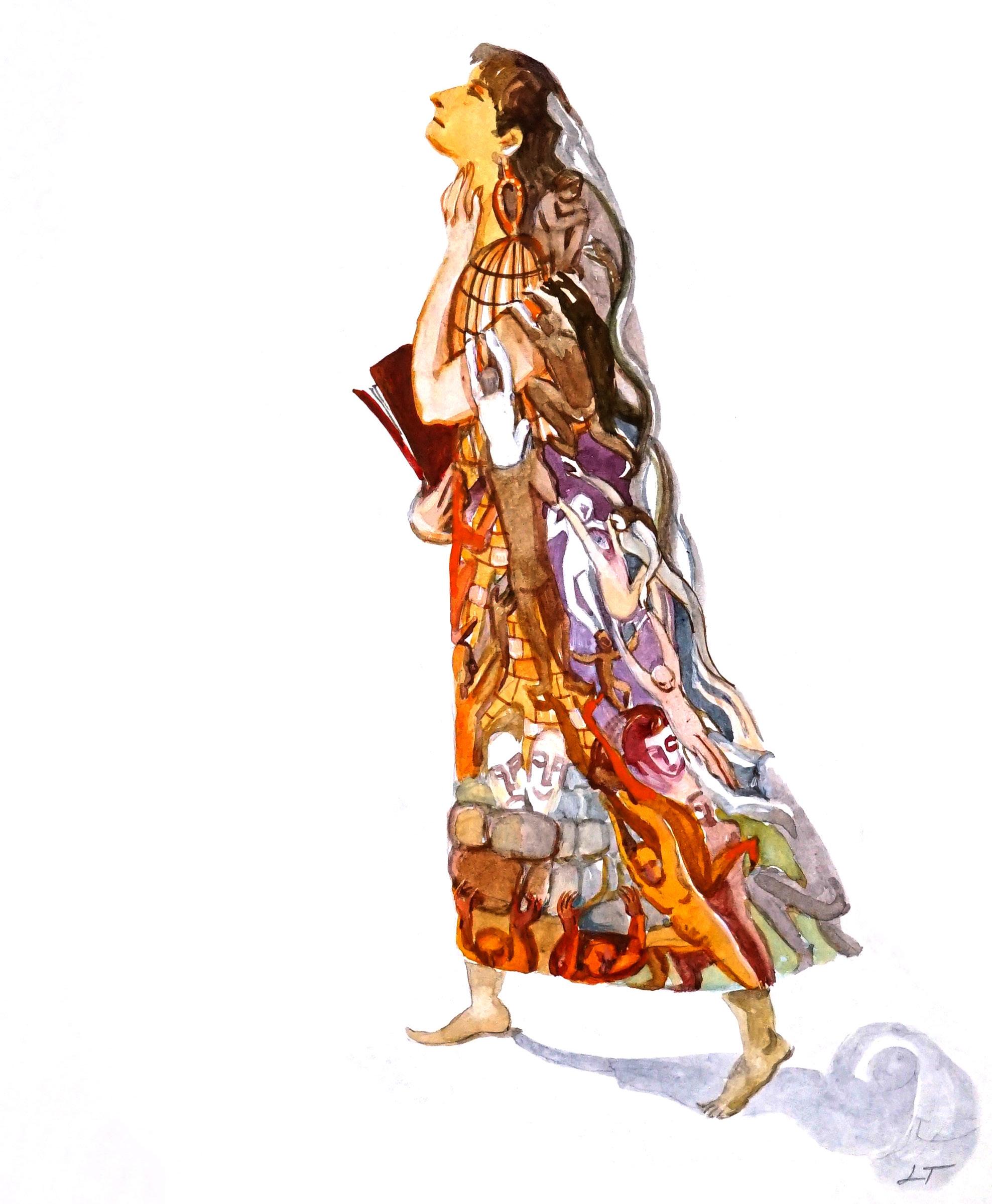
Where I go, I go complete, with my collection of sorrows, with the family album on the back, with the empty nest in the chest. The song that I haven’t sung yet I carry it in my throat and the name of my son in the palm of the left hand.
Where I go, I take everything: I carry with me my ancestors, all the lovers and the daughters that I did not have, the plants and stones of my old house.
Where I go, I take everything. I go complete wherever I may go.
A donde voy, me voy completa, con mi colección de dolores, con el álbum familiar en la espalda, con el nido vacío en el pecho.
La canción que aún no he cantado la llevo en la garganta y el nombre de mi hijo en la palma de la mano izquierda.
A donde voy, me llevo toda: cargo conmigo a mis ancestros, a los amantes y las hijas que no tuve, las plantas y las piedras de mi antigua casa.
A donde voy, me llevo toda. Me voy completa a donde vaya.
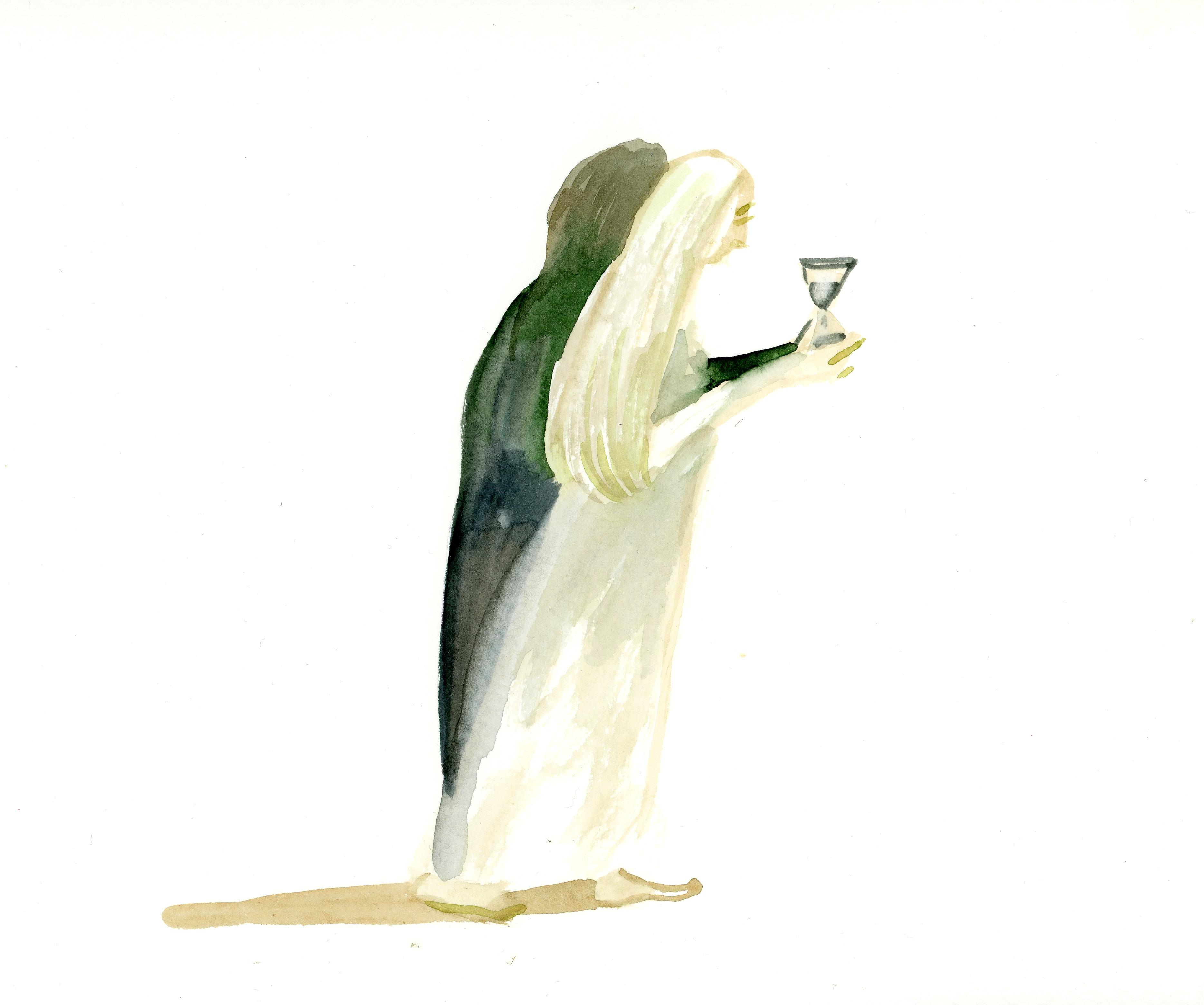
Nostalgia is a ghost that makes us look back and we are already statues.
In the road, is a painful stoke where time is stuck, ripped to shreds.
It is a sick girl infecting the time, who shows a sweet face, touches us softly, that is drawing us. What pulls us down and hurts
Is not life, is the effigy of our own death that, even before reaching us, stalks us.
If we invest present in a “would have” the profit will be a dead time.
La nostalgia es un fantasma que nos hace voltear y ya somos estatuas. Es una estaca dolorosa en el camino Donde se queda el tiempo hecho girones.
Es una niña enferma que contagia al tiempo, que pone cara dulce, que nos toca suave, que nos va atrayendo.
Lo que nos jala hacia atrás y nos lastima no es la vida, es la efigie de la propia muerte que aún sin alcanzarnos nos hostiga.
Si invertimos presente en un hubiera, la ganancia será un tiempo muerto.
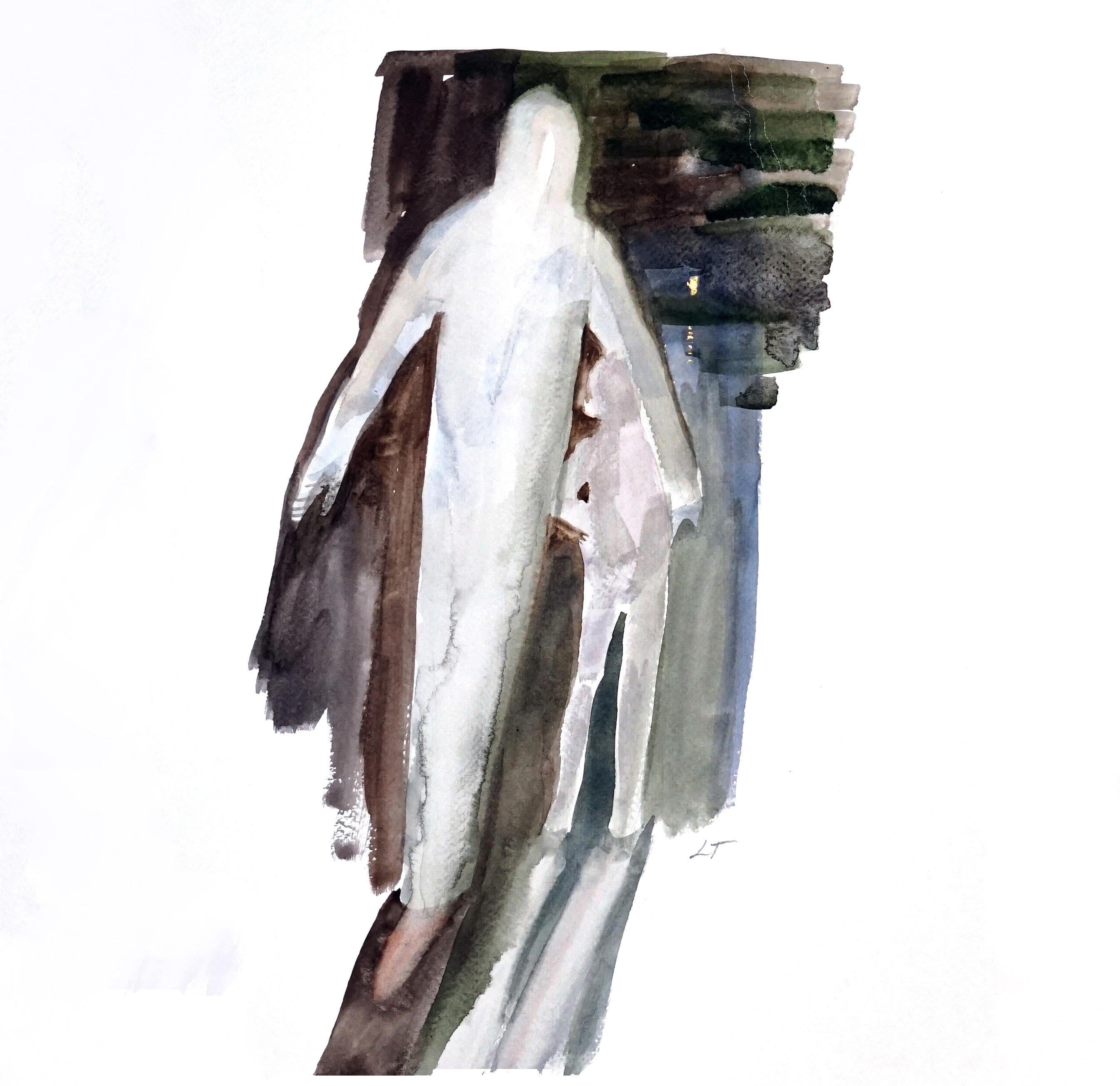
To return with saddened eyes and lips to a world that already is not ours nor we of it, to return, as Lazarus, without being able to hold on to the arms that loving celebrate the return from that place that only we knew and from whose marks we cannot escape.
Retornar con los ojos y los labios tristes, a un mundo que ya no es nuestro ni nosotros de él, retornar como Lázaro, sin podernos asir de los brazos que amorosos festejan el regreso de ese lugar que solo nosotros conocimos y de cuya marca no habremos de escapar.
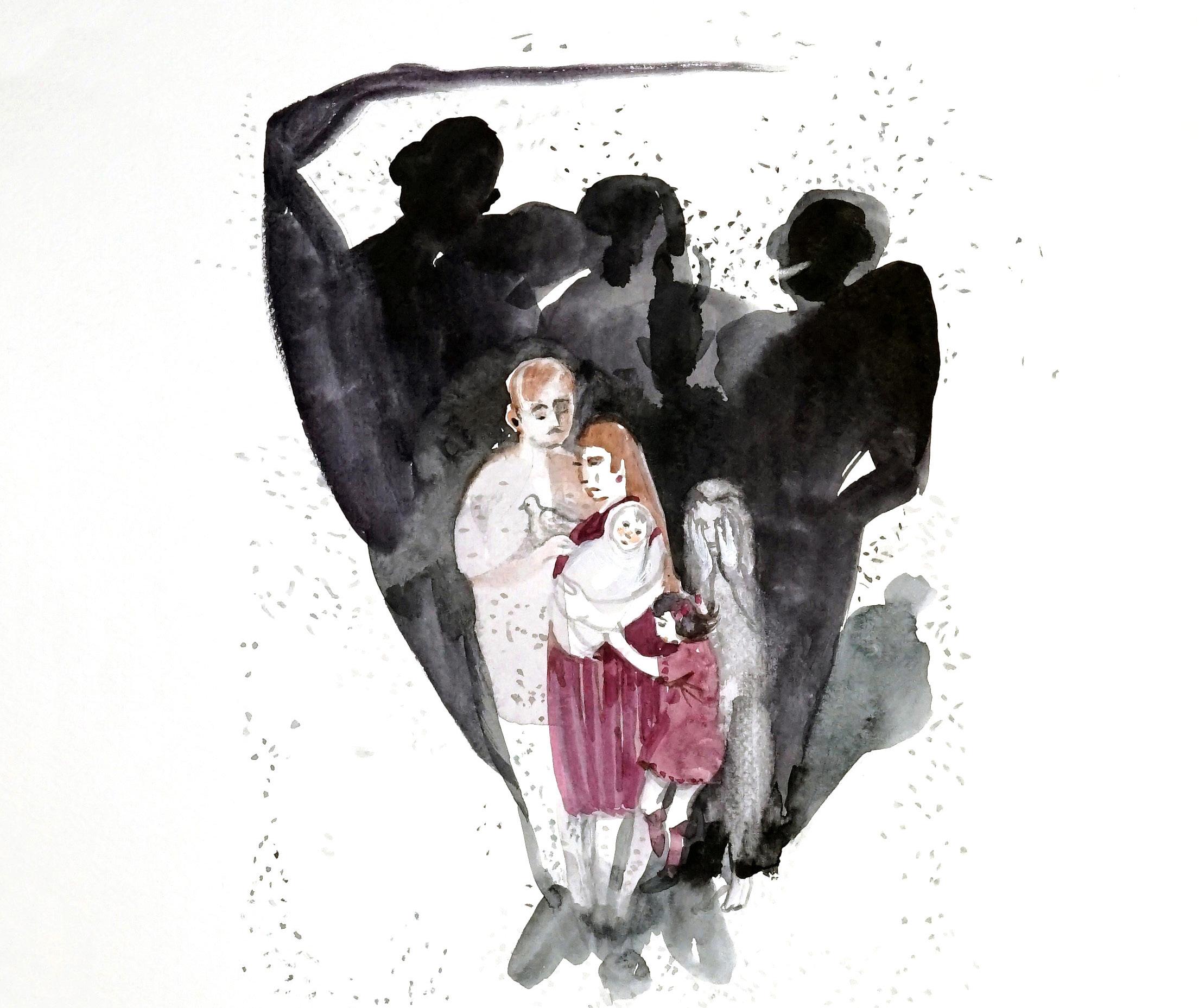
1
They came home one day and after looking out the window
We open the door for them, generous and kind as our grandparents taught us, we offered them everything: we gave up our bed, we set the table for them, we take care of the noise, we protect their things.
But they confused everything: they took our house and destroyed centuries of memory and of dreams. In return they gave us stories nothing clear, but well told. They stayed between us but not to live but to prevail. They seemed rich and powerful, but they were poor
and they were hungrier than us. 2
What unknown aromas or what strange customs
¿It will break down our doors or will it widen the windows? future visitors that will come to stay, ¿Will they be different or are they the same as before?
¿Will they respect our hand? ¿They will love the women?
¿They will protect children like the stars and the tree? ¿Will they sail our sky?
¿Will descend to earth? ¿They will put their foot down again in the dying sphere?
Perhaps they´re already here Perhaps they never left.
y tenían más hambre que nosotros.
Llegaron a casa un día y después de mirar tras la ventana les abrimos la puerta. Generosos y amables como nos enseñaron los abuelos, les ofrecimos todo: cedimos nuestra cama, les pusimos la mesa, los cuidamos del ruido, protegimos sus cosas.
Pero ellos confundieron todo: tomaron nuestra casa y destruyeron siglos de memoria y de sueños. A cambio nos dieron cuentas nada claras, historias bien contadas. Se quedaron entre nosotros pero no a convivir sino a imponerse.
Parecían ricos y poderosos, pero eran pobres
2
¿Qué aromas desconocidos o qué costumbres extrañas derrumbarán nuestras puertas o ensancharán las ventanas?
Los visitantes futuros que vendrán para quedarse, ¿serán acaso distintos o son los mismos de antes? ¿Respetarán nuestra mano, amarán a las mujeres, protegerán a los niños igual que a las estrellas y al árbol? ¿Navegarán nuestro cielo, descenderán a la tierra posarán su pie otra vez en la moribunda esfera?
¿Acaso ya están aquí? ¿Acaso nunca se fueron?
Only native people, the pure, unpolluted, animals, and some children.
Putting your feet on the ground is not a matter of reality, but of dreams, of integrity, direct contact with the origin.
Putting your feet on the ground
Is not for the cultivated persons, or the informed, It is for those naturally wise, for humble, It is the secret desire of every angel.
Tan solo los nativos, los seres puros no contaminados, los animales y algunos niños.
Poner los pies sobre la tierra no es cuestión de realidad, sino de sueños, de integridad, contacto directo con el origen.
Poner los pies sobre la tierra no es para cultos o informados, es para sabios naturales, para humildes, es el deseo secreto de todo ángel.
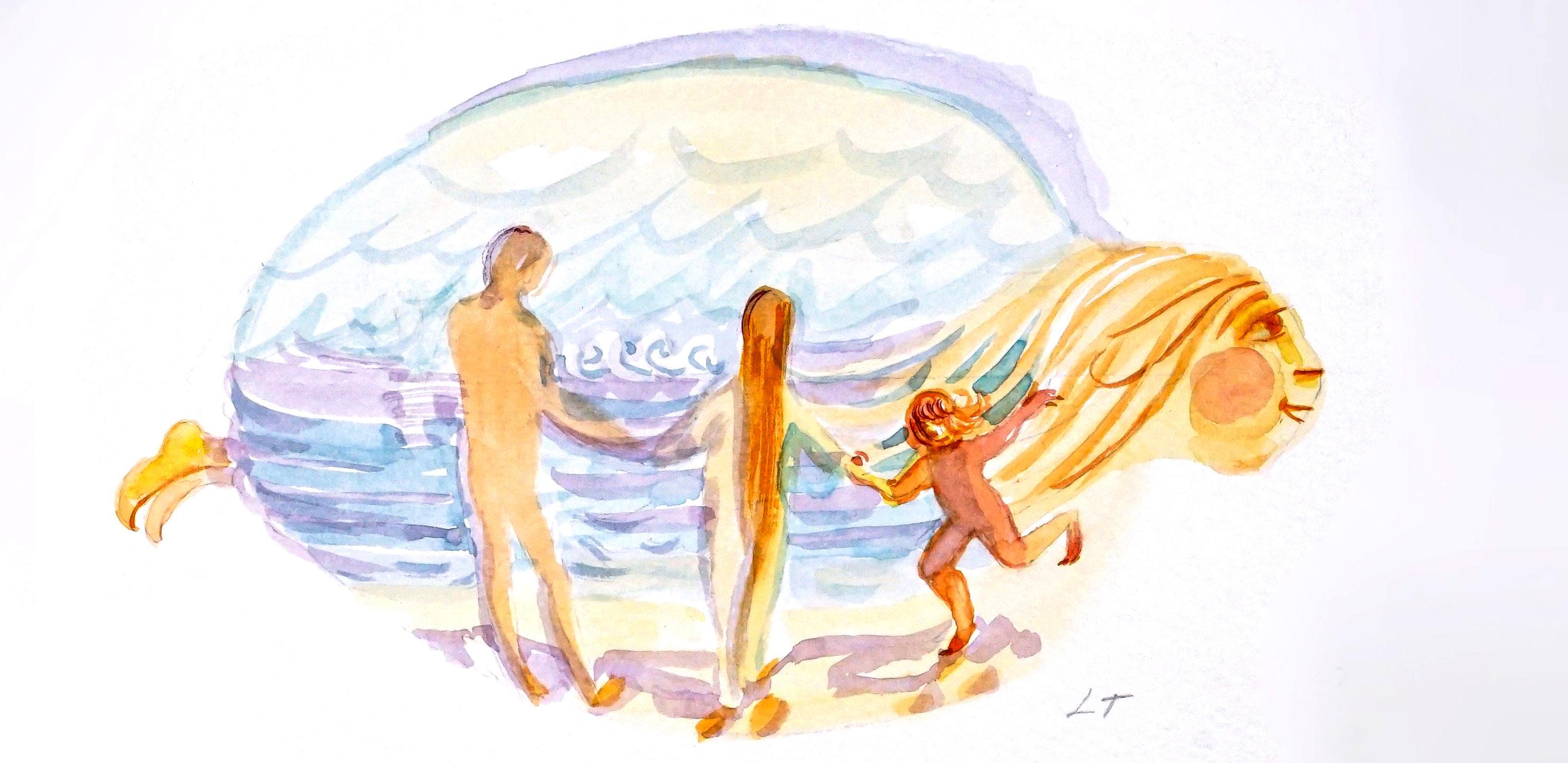
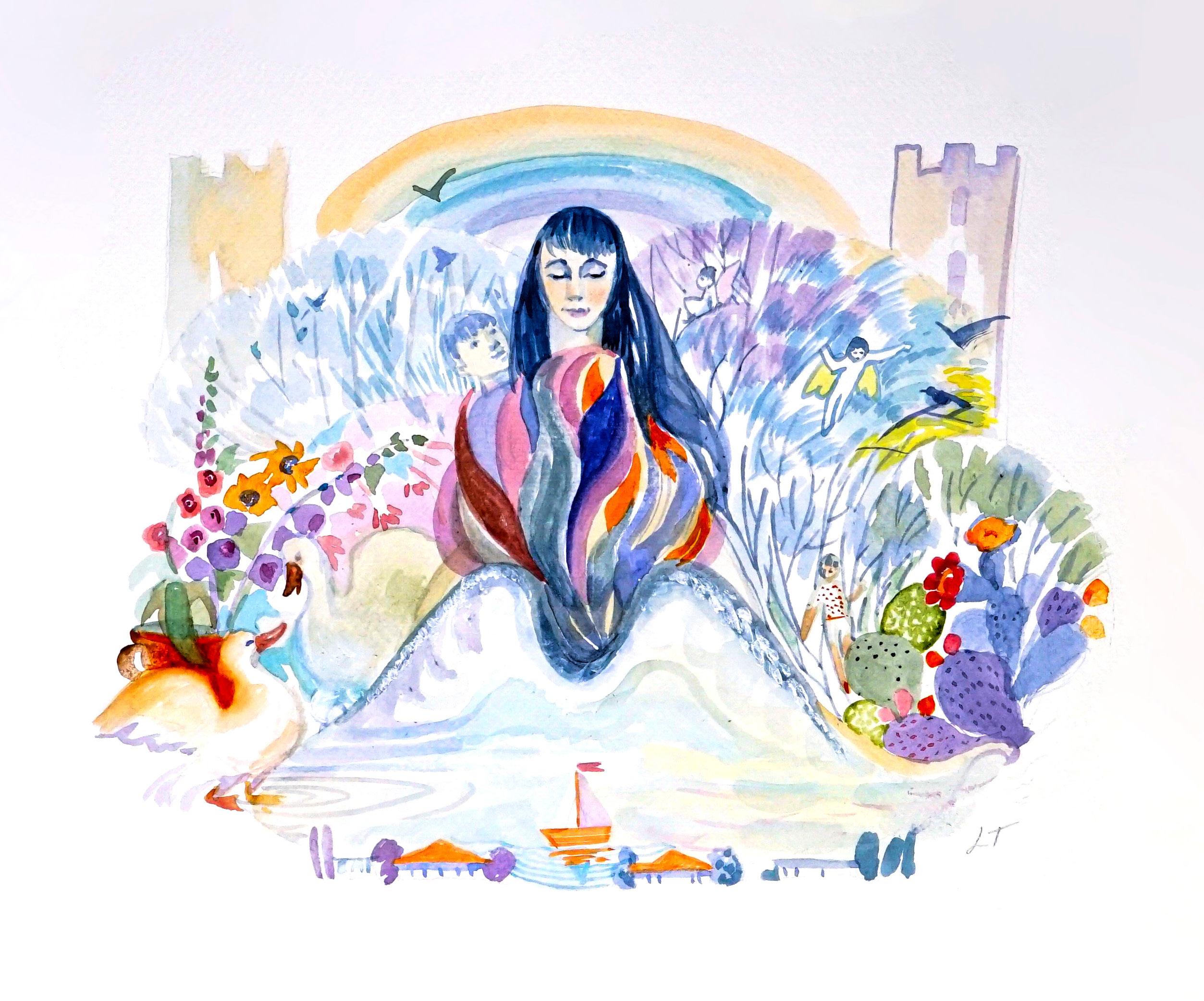
Primitive as my hunger are the trills that I hear with the same sound as my mother pronounced my name elsewhere.
I feel this song next to me, I also hear it on the tips of my plants, and my plants are the plants that in front of my eyes I see and its spike is the song that comes out among the trees. It is my heart that now sings in those birds. Now I’m in the treetops my little brothers have wings, my mother has a beak and legs and my father squawks.
Under my eyes I see gabled houses like eMes, and tall towers like eLes. I look at a river that grows and whose arms take shape in my body and sheet music are my mouth and my fingers.
The darkness is brewing now, Or is it the light that hides among the birds?
Life is intense this afternoon
Where I was so many other afternoons, Why so much silence between my hands?
I am a dog, I am air, I am a dove, that one who shouts in the distance is my grandfather and the one who breathes by my side, my brother Carlos. Where did I perceive this smell, in what star?
At what age did this sound stun me?
What did I have to forget?
Today the finest rope I have tense to the point of hurting the sky. I move just like a mountain and I’m beating like the pine tree and the ant.
Under my plants the fire grows and in the center of me, right in the center, there is a gray-blue-purple-red-sepia-brown-bitter-wanderingabsorbed star throw flower cast light sing.
Tan primitivos como mi hambre son los trinos que escucho con el mismo sonido con que mi madre pronunciaba mi nombre en otra parte.
Este canto lo siento sobre mí, también lo escucho en la punta de mis plantas, y mis plantas son las plantas que frente a mis ojos veo y su espiga es el canto que sale entre los árboles. Es mi corazón el que ahora en esas aves canta.
Ahora estoy en la copa de los árboles, mis hermanos pequeños tienen alas, mi madre tiene pico y patas y mi padre grazna.
Bajo mis ojos veo casas de dos aguas como eMes, y torres como eLes altas. Miro un río que se eleva y cuyos brazos toman forma en mi cuerpo -partitura son mi boca y mis dedos.-
La oscuridad se está gestando ahora, ¿o es la luz la que se esconde entre los pájaros? La vida es intensa en esta tarde, ¿en dónde estuve tantas otras tardes,
por qué tanto silencio entre mis manos?
Soy perro, soy aire, soy paloma, ese que grita a lo lejos es mi abuelo y el que respira junto a mí, mi hermano Carlos.
¿Dónde sentí este olor, en cuál estrella?
¿En qué edad me aturdió este sonido que hube de olvidarlo?
Hoy la más fina cuerda llevo tensa al punto de dolerle al cielo. Me estoy moviendo igual que una montaña, y estoy latiendo igual que el pino y que la hormiga.
Bajo mis plantas crece el fuego y en el centro de mí, justo en el centro, hay una estrella gris-azul-morada-roja-sepia -parda-amarga-errante-absorta echa flor
echa luz echa canto.
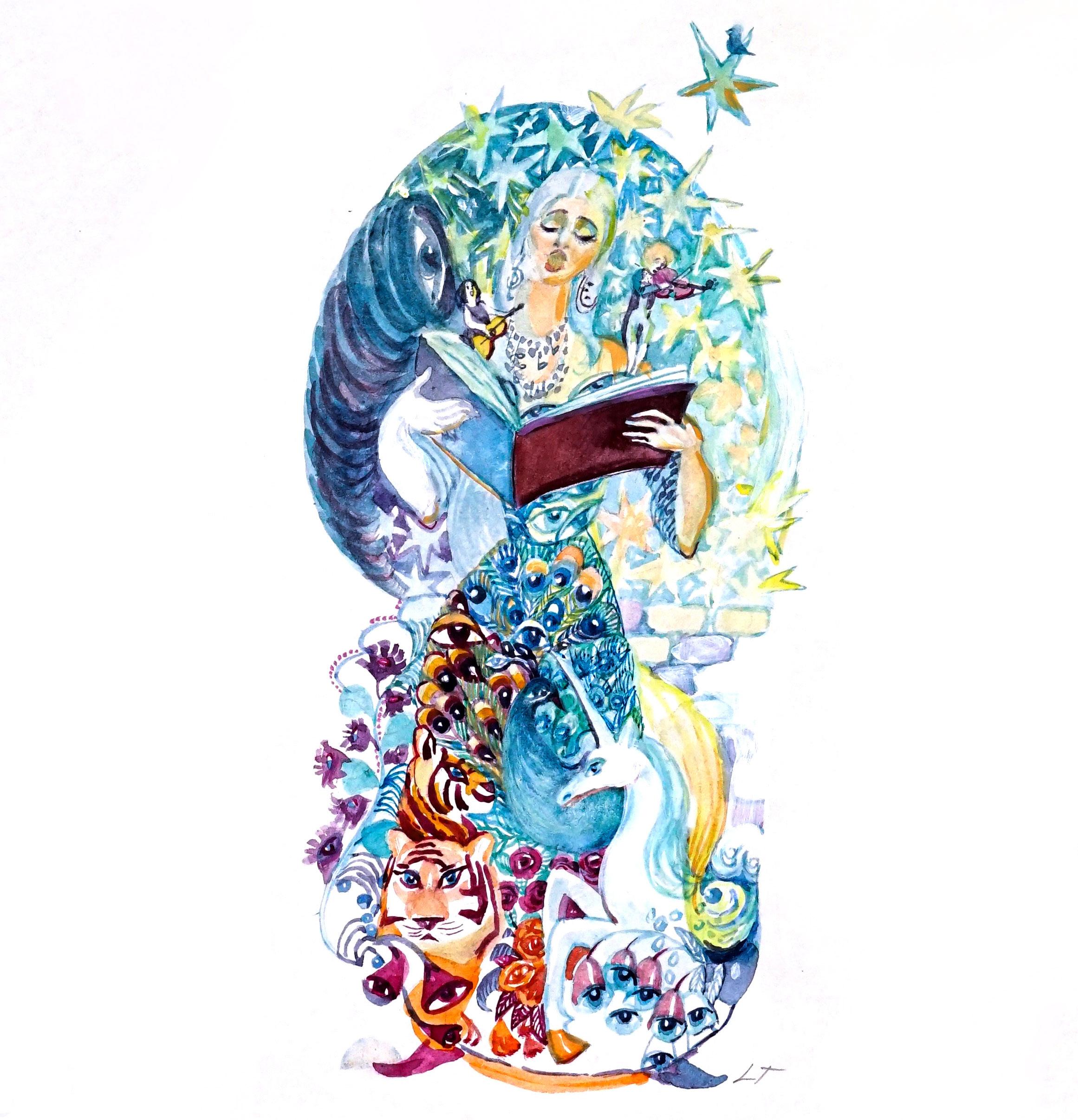
1
The one with the beautiful voice here sings to me. Flowers, walls and stars their voices rise.
2
In you the light opens the door to the immeasurable domain from image and everything multiplies with its own order: abundance and justice.
Show me the poet that between quicksilvers you keep, the one who speaks to the eye who listens openly. There are a thousand eyes on you and they are the same: the eye of the cyclops, the eye of the hurricane, Tiger’s Eye, and the lock. They all carry his own oracle.
4
Calliope temple hers cords in the light and next to the virgin image, down to water the unicorns.
While Calliope sings, the light fights battles, the deaf look, the blind are silent.
La de la bella voz aquí me canta. Flores, muros y estrellas sus voces alzan.
2
En ti la luz abre la puerta al inconmensurable dominio de la imagen y todo se multiplica con su propio orden: abundancia y justicia.
Enséñame al poeta que entre azogues guardas, el que habla al ojo que escucha abiertamente. Hay mil ojos en ti y son el mismo: el ojo del cíclope, el ojo del huracán, el ojo del tigre, y el de la cerradura. Todos llevan en sí su propio oráculo.
Calíope temple sus cuerdas en la luz y junto a la imagen virgen, bajen a abrevar los unicornios.
Mientras Calíope canta, la luz libra batallas, los sordos miran, los ciegos callan.
In Tempe there are trees with feathers and birds with branches that are attracted to each other. Thus, the bird perfumes what the tree sings
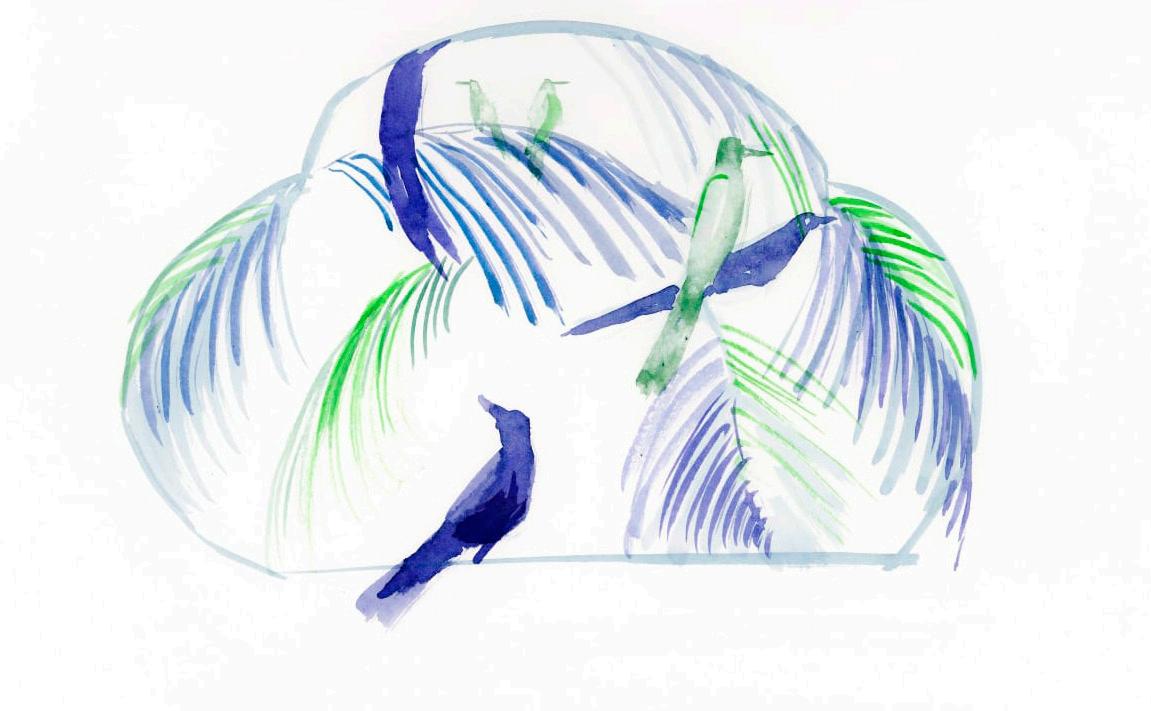
y pájaros con ramas que se atraen mutuamente. Así, el ave perfuma lo que el árbol canta.
Those birds painting the day with small signs write conversations in the air with their wings, they are bird-words inscribing their flights in the great book of the night, that which is opened every day.
Ésos pajaros que pintan el día de pequeños signos, que escriben con sus alas conversaciones en el aire, son pájaros-palabras inscribiendo sus vuelos en el gran libro de la noche que se abre cada día
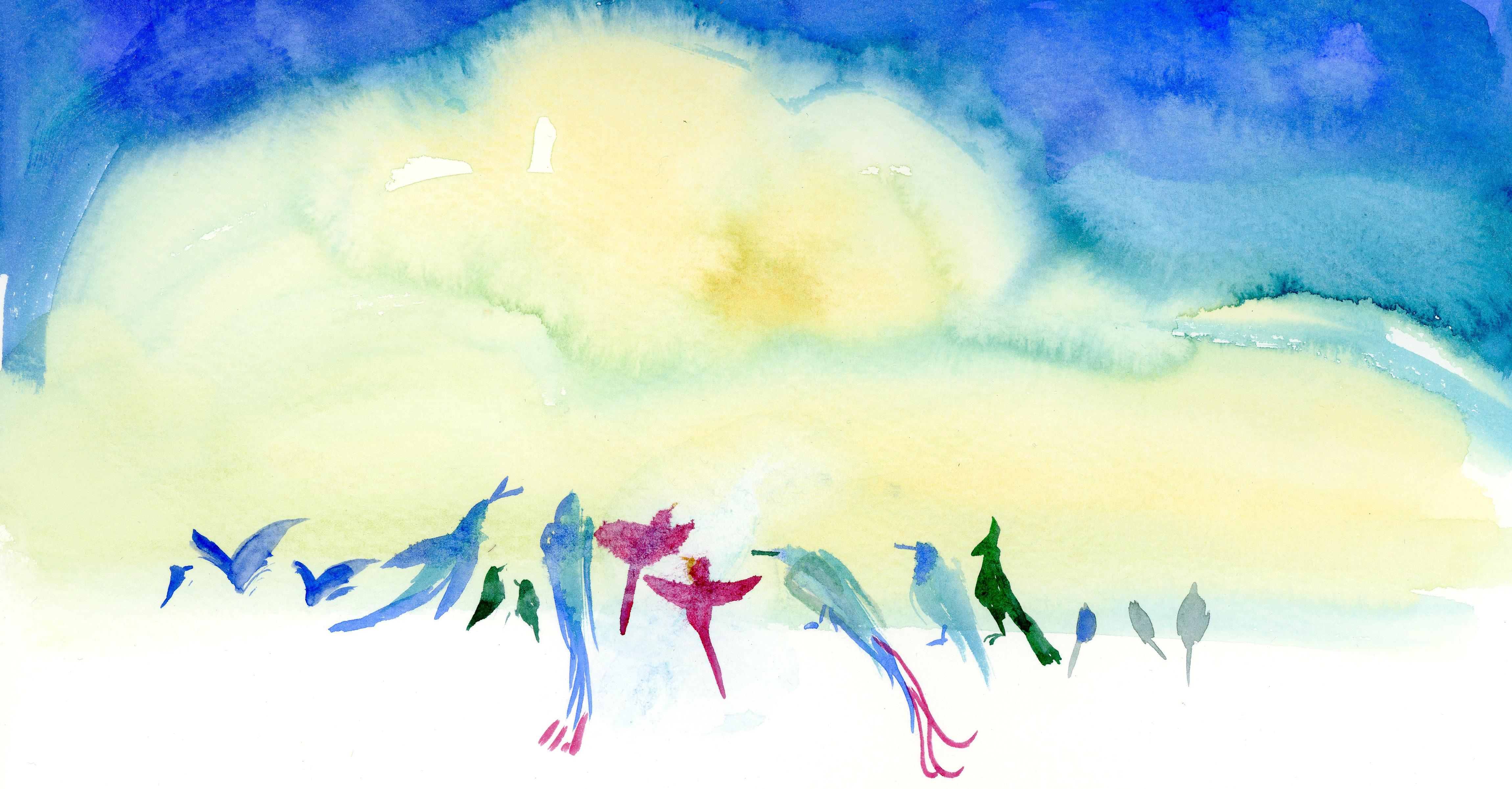
Ésos pajaros que pintan el día de pequeños signos. Those birds painting the day with small signs.
Looking at you for some seconds is enough, Knowing that, at least once a day You will be here before my eyes Softening the lines of my lips Inhabiting my heart with certainty.
Me basta verte unos segundos, saber que al menos una vez al día te posarás aquí frente a mis ojos, suavizando las líneas de mis labios, poblando mi corazón con la certeza.
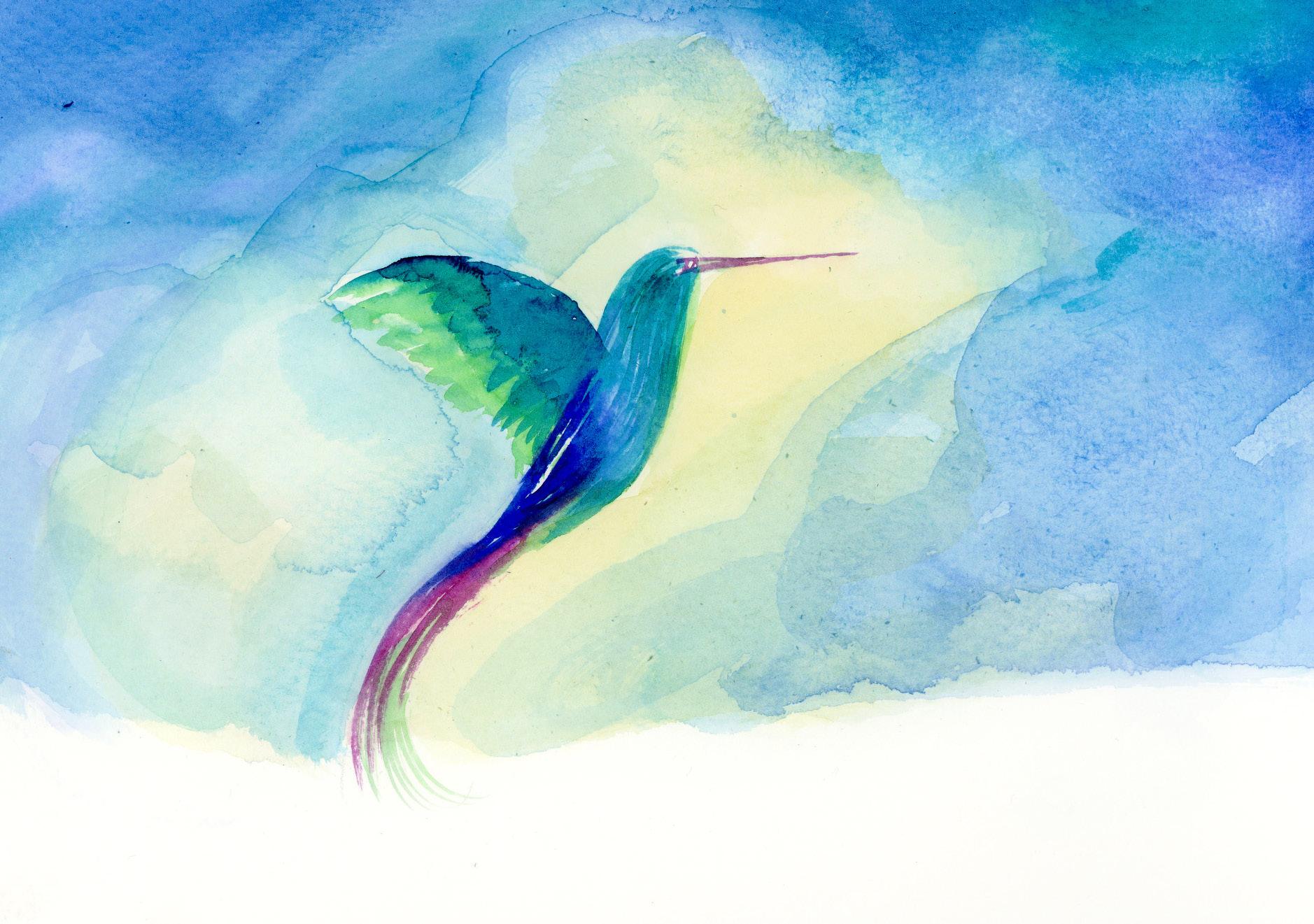
I do not want to trap you,
Yo no quiero atraparte,
a small picture box, an even smaller sensory button, a hummingbird, and an open window. With them I navigate, HERE, searching, just an image, and one word match each other to rebuild the world.
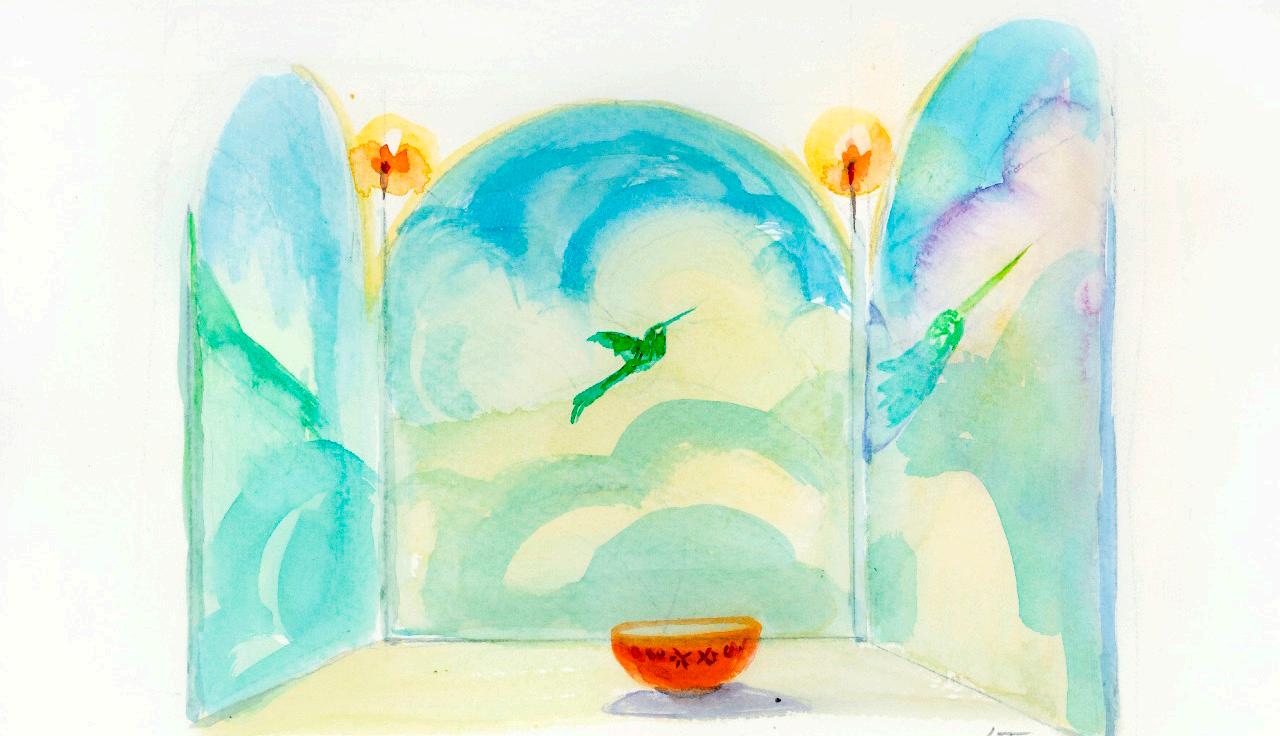
una caja de imágenes pequeña, un botón sensorial aún más pequeño, un colibrí y una ventana abierta.
Con ellas navego, Aquí, buscando, solo una imagen, y una sola palabra que coincidan entre si para reconstruir el mundo.
Combinations and permutations, shadows and sparkles, climates and timetables, social and natural anecdotes pass before my window and my avid eyes, which, thoroughly grateful, fix everything in place.
Combinaciones y permutaciones, sombras y destellos, climas y horarios, anécdotas sociales y naturales pasan frente a mi ventana y mis ojos ávidos que extensamente agradecidos lo fijan todo
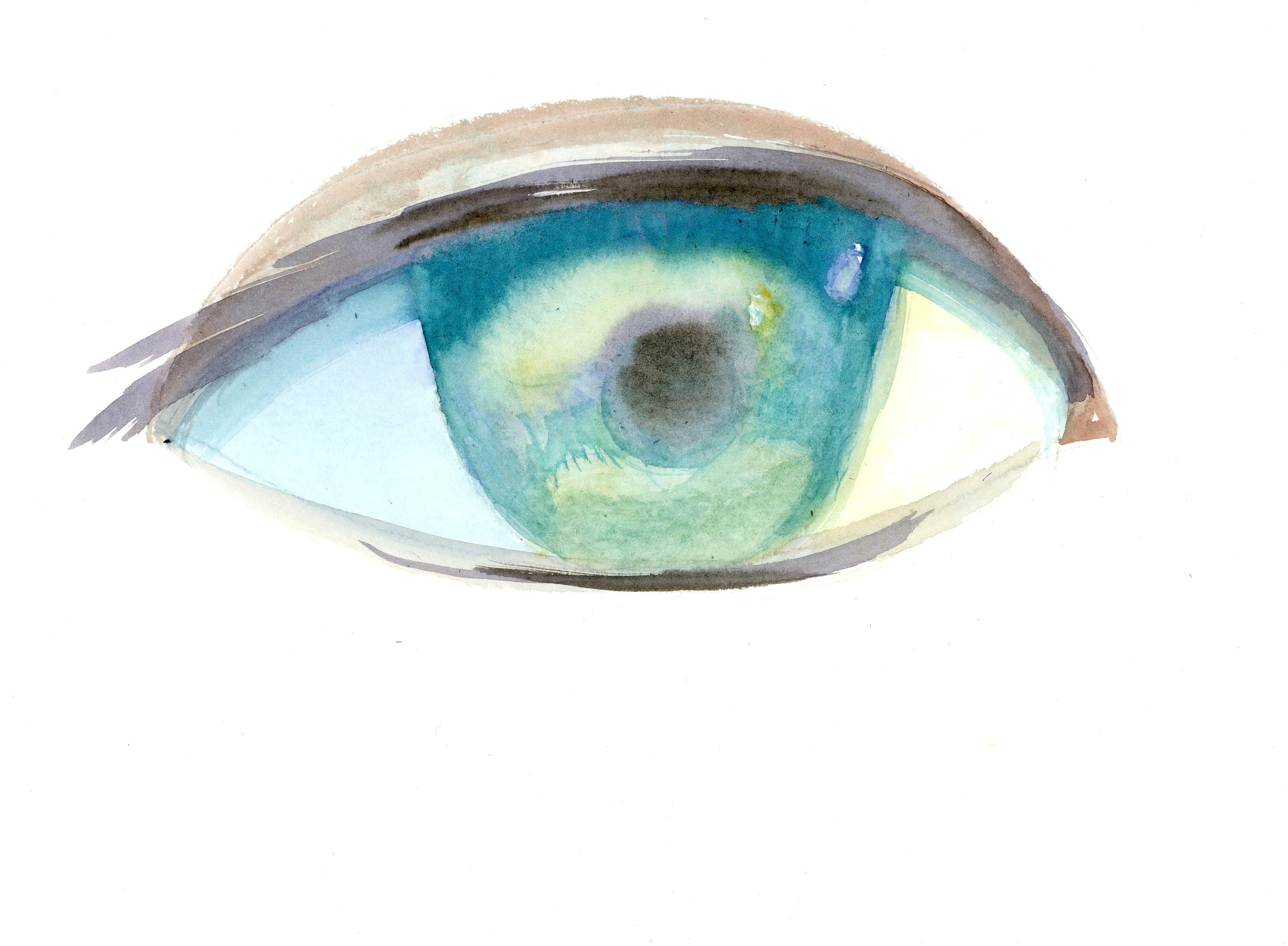
La misma ventana no implica la misma mirada: The same window does not mean the same gaze:
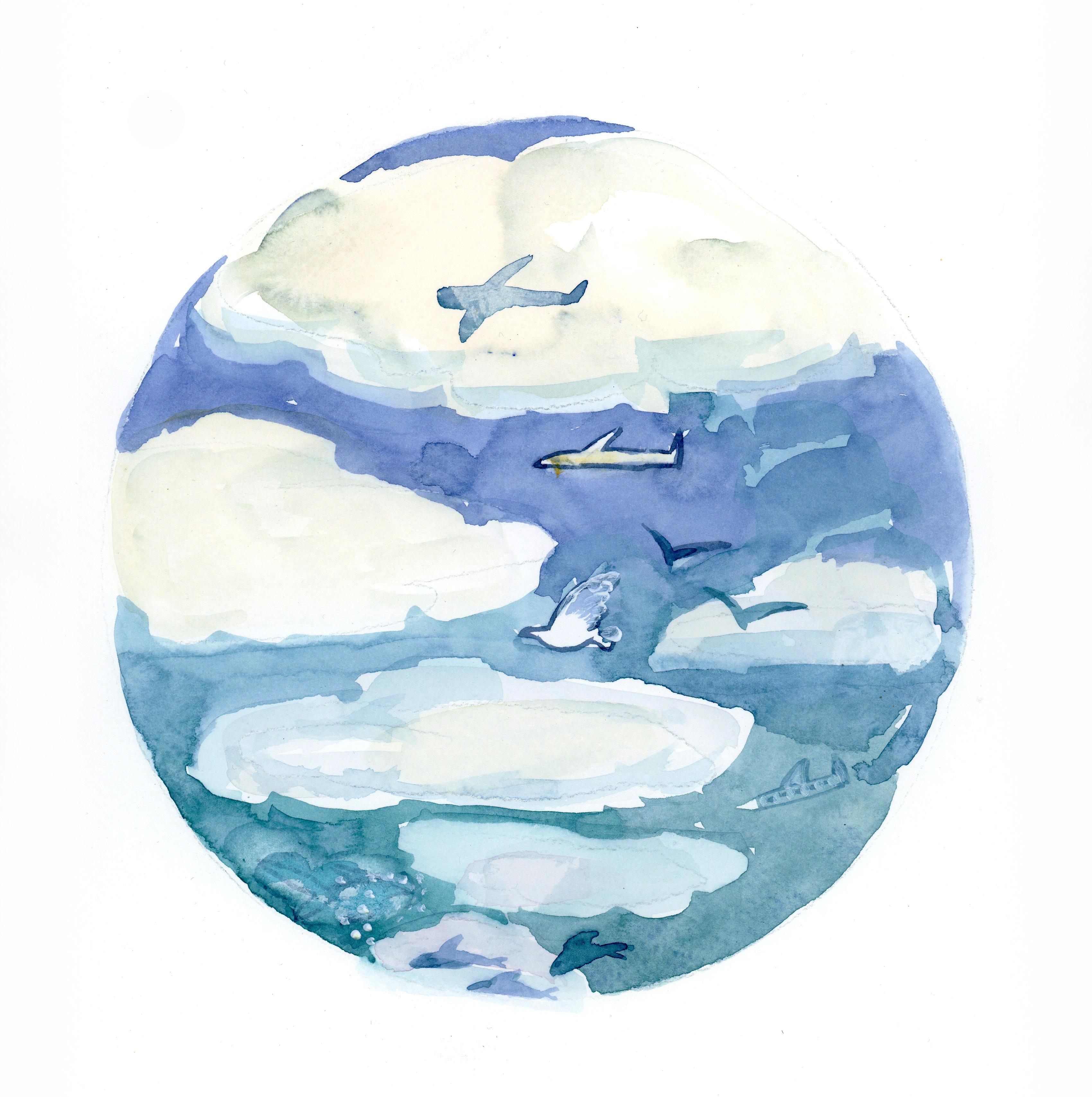
Airplanes are fish always sailing the fishbowl in the sky.
An airplane passes by every minute: unhurried little fish crossing through the pond of the day.
III Lonesome fish lost in archipelagos of clouds.
There is nothing lonelier than an airplane up there, and someone’s eyes down here looking at it.
Every time I raise my sights, there is an airplane in the sky, it seems like my eyes send them to the clouds.
The airplanes in the sky owe their flying to my sight and none has ever fallen: my eyes place them exactly in the seventh heaven.
El pez avión surca a todas horas la pecera del cielo.
Cada avión pasa un minuto: pecesitos sin prisa cruzando el estanque del dia III Pececillos solitarios perdidos en archipielagos de nubes
Nada más solitario que un avión arriba, y unos ojos desde abajo mirándolo.
Cada vez que levanto la vista hay un avión en el cielo, parece que mis ojos los ponen en las nubes.
En el cielo los aviones están por mi mirada y ninguno nunca ha caído: mis ojos los depositan exactamente en el séptimo cielo.
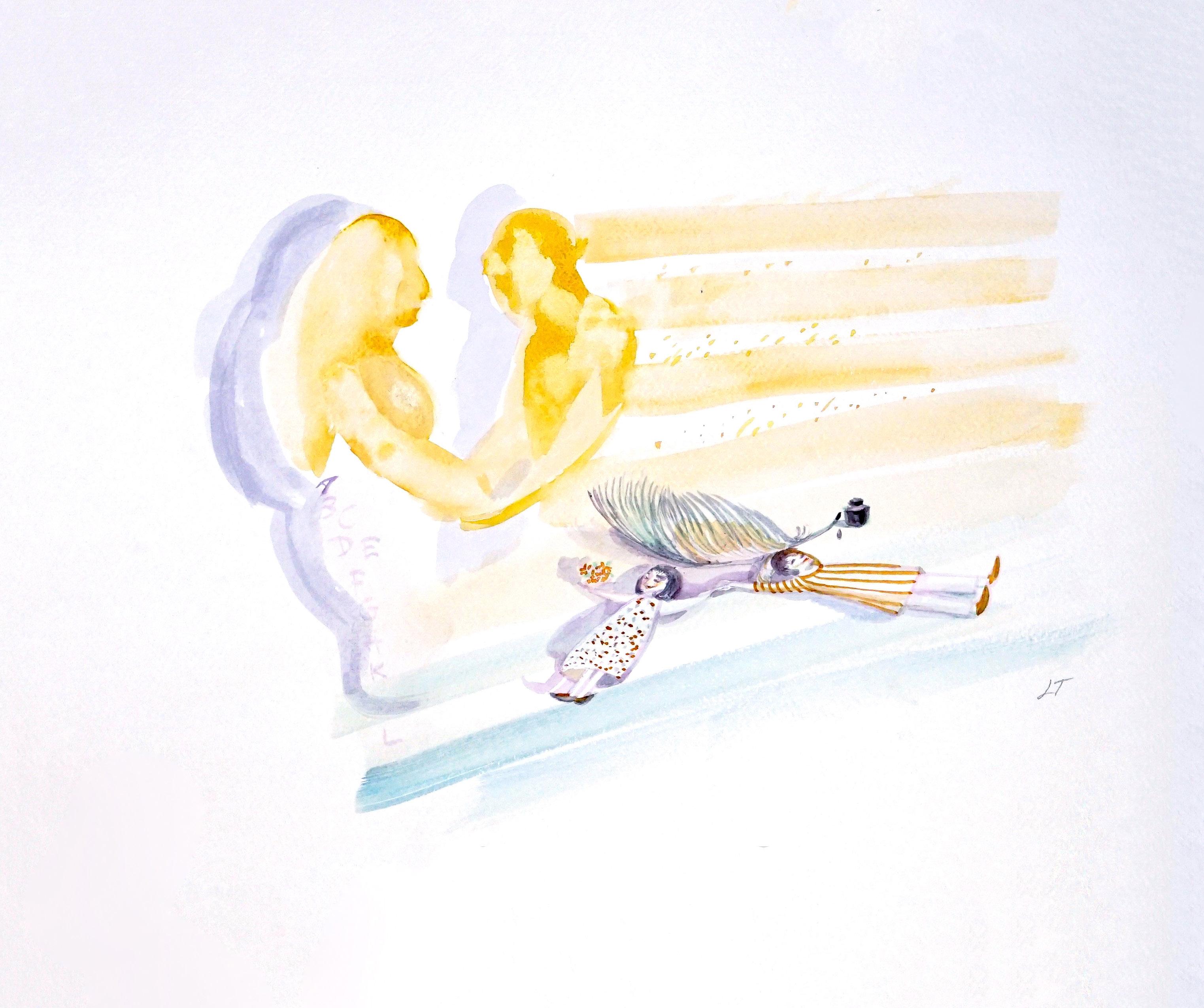
We were the volatile signs of the perfect paragraph where eternity compresses itself. We were the ludicrous figures donated by the laugh to the stanzas of the poem.
We were lip work, the inner voice of our hands, of our whole body constant conversation. Today we are the silence written by light on a blank sheet.
Éramos los volátiles signos del párrafo perfecto donde la eternidad se comprimía.
Éramos las lúdicas figuras donadas por la risa a las estrofas del poema.
Éramos la obra de los labios, la interna voz de nuestras manos, de todo nuestro cuerpo conversación constante.
Hoy somos el silencio escrito por la luz en una hoja en blanco.
Dramaturga, novelista, poeta, historiadora y activista fronteriza a favor de la lucha feminista y de la conservación de los barrios más antiguos en El Paso, como Duranguito y el Segundo Barrio. Maestra en Creación Literaria y doctora en Historia de la Frontera por la Universidad de Texas en El Paso (UTEP), doctoranda en Contextos socioculturales de la educación, en donde se desempeña como catedrática en el Departamento de Historia y en el programa de Estudios Afroamericanos. Ha sido beneficiada con varios apoyos y becas para desarrollar sus estudios. Cuenta con experiencia editorial, tanto académica como literaria.
Poemas traducidos: “Colibrí”, “La misma ventana”, “Esos que pintan el día”, “En tempe”, “Quién puede poner los pies sobre la tierra”, “El tren I”, “Qué privilegio tener un jardín en nuestra casa”, “Sauce y llorones”, “Nostalgia y tiempo”.
Madeline Millan es escritora, traductora y fotógrafa. Ha publicado siete libros. Sus poemas han sido traducidos al inglés, francés, árabe, portugués e italiano. Durante una década dirigió las lecturas bilingües de poesía en el Cornelia Street Café. Creadora de Entreextremos, la primera revista electrónica latinoamericana de cine. Autora del guión titulado Alwalida, historia de Elisa Remón, dirigido por el director catalán Manuel Polls. En 2017 fue becada por la
fundación Valparaíso, en Mojácar/España, para iniciar los dibujos de un poema cuento para niños, Secreto escondido en un caracol. Es directora de “Casa Pilar”, una residencia de artistas y escritores en Chapala, México. Su página es: madelinemillan.com
“La noche habla”, “La casa”, “la gata”, “como cervatillo”.
“A donde vaya”, “El otro Juárez,” “Nunca será noviembre”, “Canto II”, “Los visitantes”, “El tren II”, “Calidoscopío”, “Lázaro”.
Playwright, novelist, poet, historian and border activist in favor of the feminist struggle and the conservation of the oldest neighborhoods in El Paso, such as Duranguito and Segundo Barrio. Master in Literary Creation and PhD in Border History from the University of Texas at El Paso (UTEP), PhD student in Sociocultural Contexts of Education, where she is a professor in the Department of History and in the African American Studies program. She has been benefited with several supports and scholarships to develop her studies. He has editorial experience, both academic and literary.
Translated poems: ¨Hummingbird¨, “The same window”, “Those who paint the day”, “In Tempe”, “Who can put their feet on the ground”, “The train I”, “What a privilege to have a garden in our house”, “Fish and planes”, “Nostalgia and time”.
Madeline Millan is a writer, translator and photographer. He has published seven books. His poems have been translated into English, French, Arabic, Portuguese and Italian. For a decade he led the bilingual poetry readings at the Cornelia Street Café. Her doctoral thesis on film and literature inspired her to create Entreextremos, the first Latin American electronic film magazine. In 2015 he wrote a script titled Alwalida, Elisa Remón’s story, directed
by Catalan director Manuel Polls. In 2017, she was awarded a scholarship by the Valparaíso Foundation, in Mojácar/ Spain, to start the drawings of a children’s story poem, Secret hidden in a snail. She is the director of “Casa Pilar”, a residency for artists and writers in Chapala, Mexico. Her page is: madelinemillan.com
“The night speaks”, “The house”, “The cat”, “like fawn”.
“Wherever I go”, “The other Juárez”, “It will never be November”, “Singing”, “The visitors”, “The train II”, ”Calidoscopy,” “Singing”, “As Lazarus”.
Lyuba Titovets. Born and educated in St. Petersburg, Russia, Lyuba took her first private art classes at the age of five. Since then she’s taught art and art history, illustrated books, created hundreds of paintings and has worked as a stage and costume designer for a large production theater. Lyuba arrived in the USA with her family in 1992, where she has achieved successes as a fine art artist beyond the scope of what she ever imagined. Including more then 20 solo shows, guest artist positions at prestigious National Exhibitions such as the Great American Artist, and has been the recipient of numerous awards including Best of Show.
Lyuba is nationally and internationally recognized for her lyrical, symbolic and whimsical works that combine wit, and naive charm; bringing a unique experience to the viewers. Her name translated from Russian means “Love” and is a feeling clearly represented in her work.
Lyuba Titovets. Nacida y educada en San Petersburgo, Rusia, Lyuba tomó sus primeras clases privadas de arte a la edad de cinco años. Desde entonces, ha enseñado arte e historia del arte, ha ilustrado libros, ha creado cientos de pinturas y ha trabajado como escenógrafa y diseñadora de vestuario para una gran producción teatral. Lyuba llegó a los EE. UU. con su familia en 1992, donde ha logrado éxitos como artista de bellas artes más allá del alcance de lo que jamás imaginó. Incluyendo más de 20 exposiciones individuales, posiciones de artistas invitados en prestigiosas exposiciones nacionales como Great American Artist, y ha recibido numerosos premios, incluido Best of Show.
Lyuba es reconocida a nivel nacional e internacional por sus obras líricas, simbólicas y caprichosas que combinan ingenio y encanto ingenuo; brindando una experiencia única a los espectadores. Su nombre traducido del ruso significa “Amor” y es un sentimiento claramente representado en su obra.
